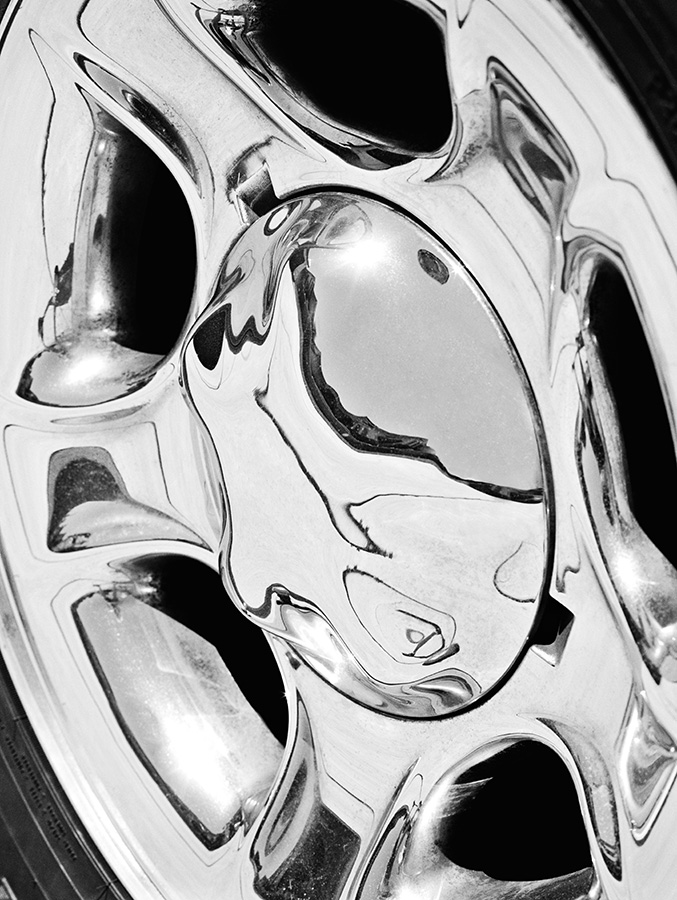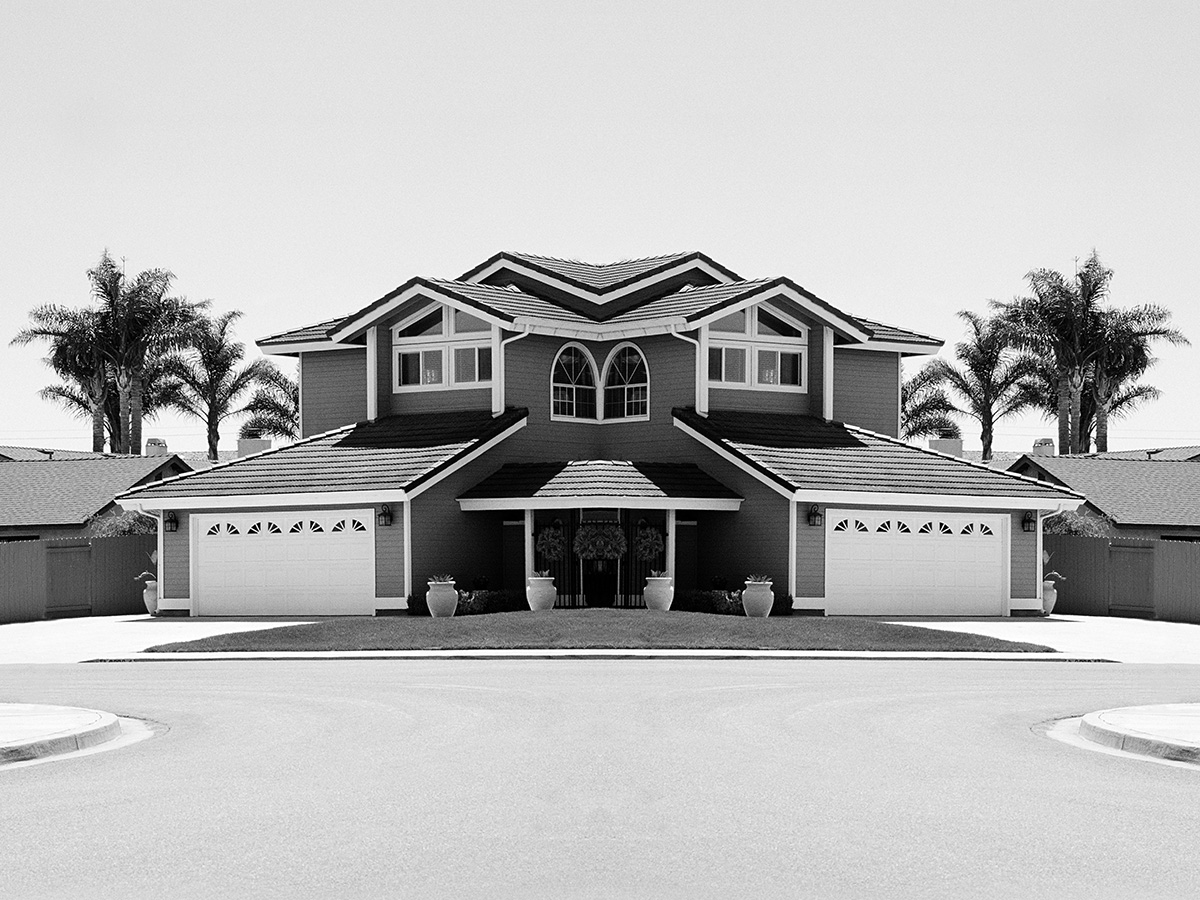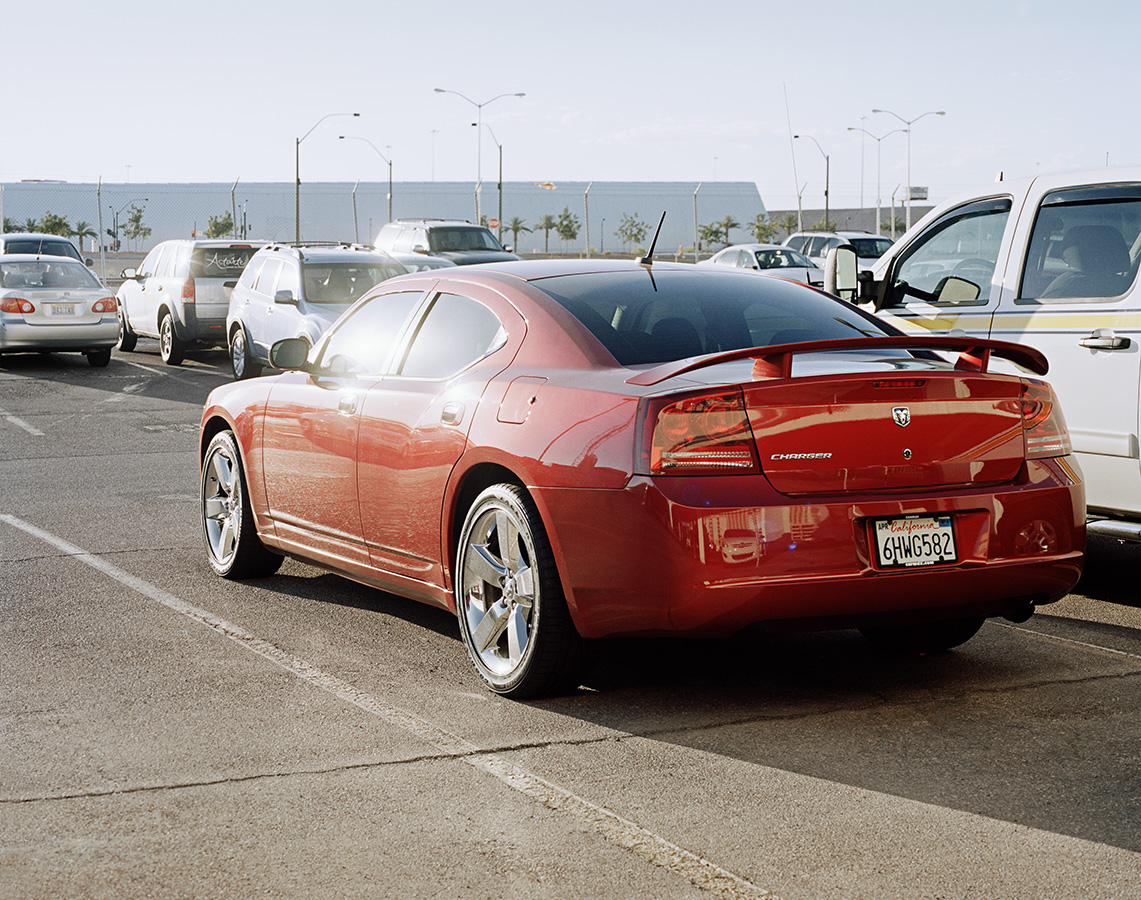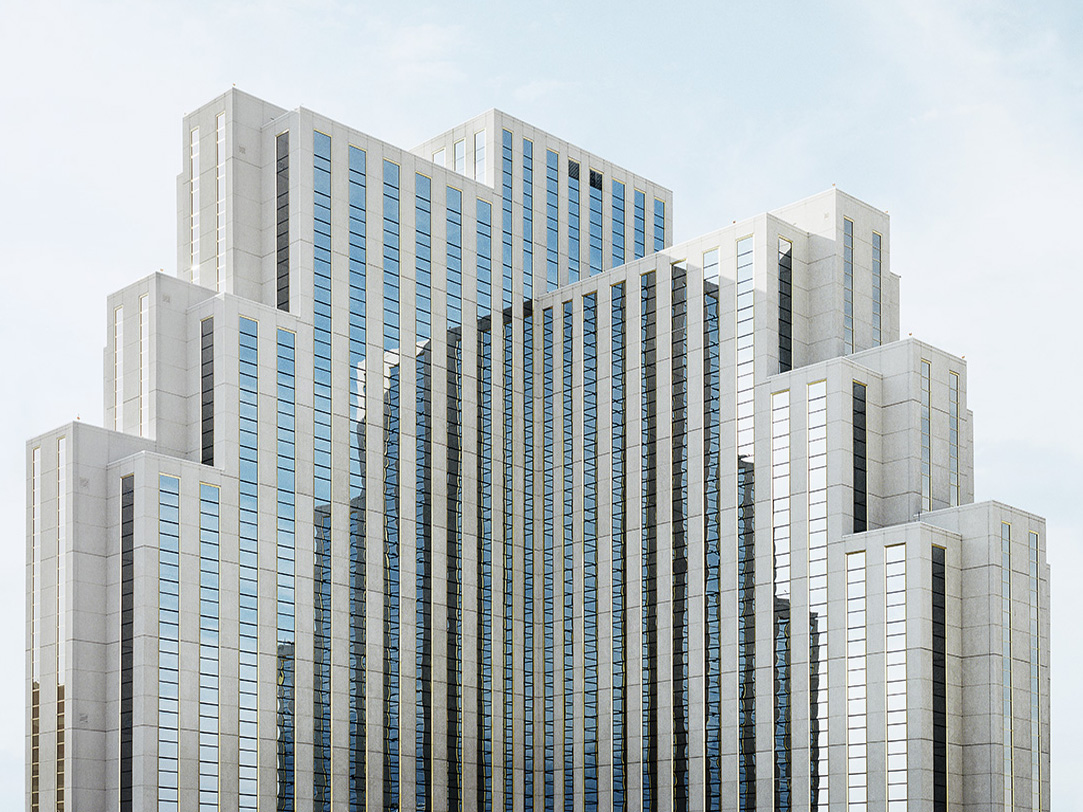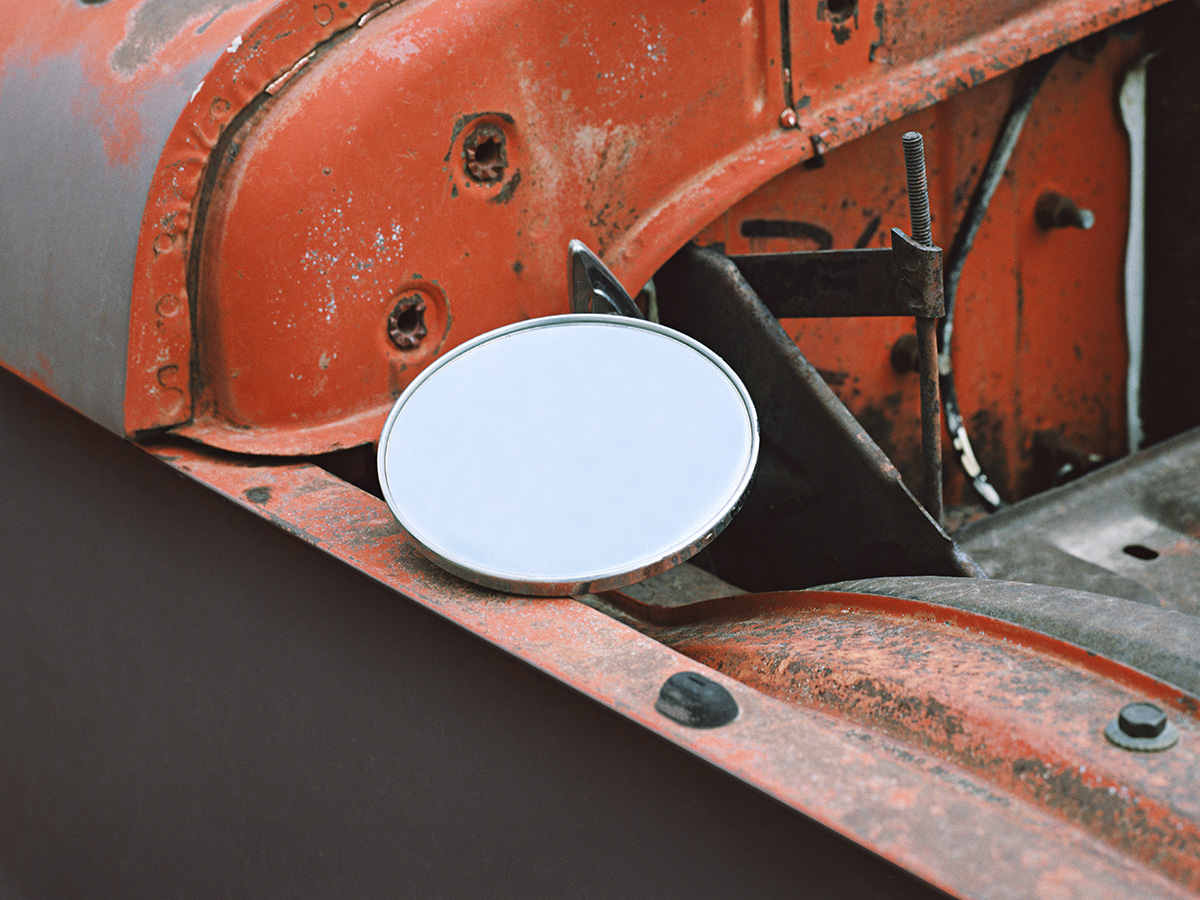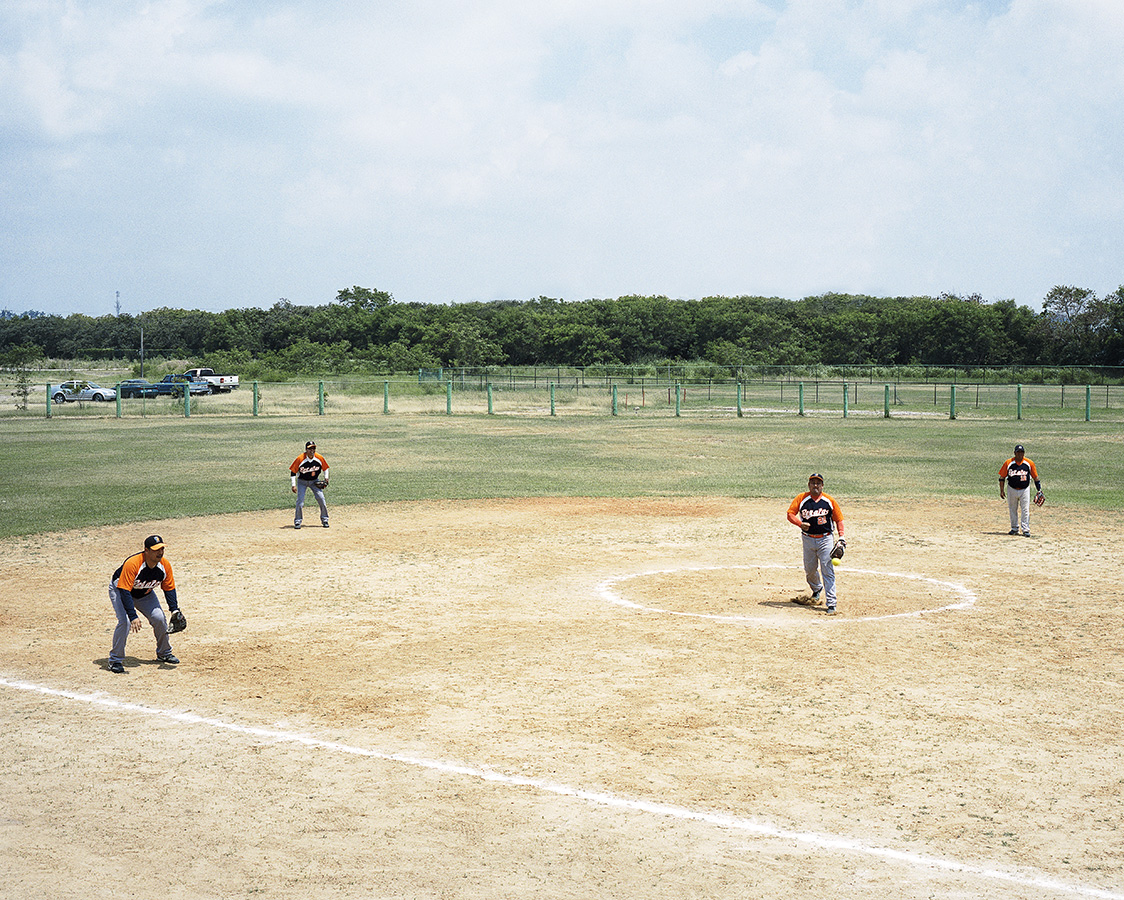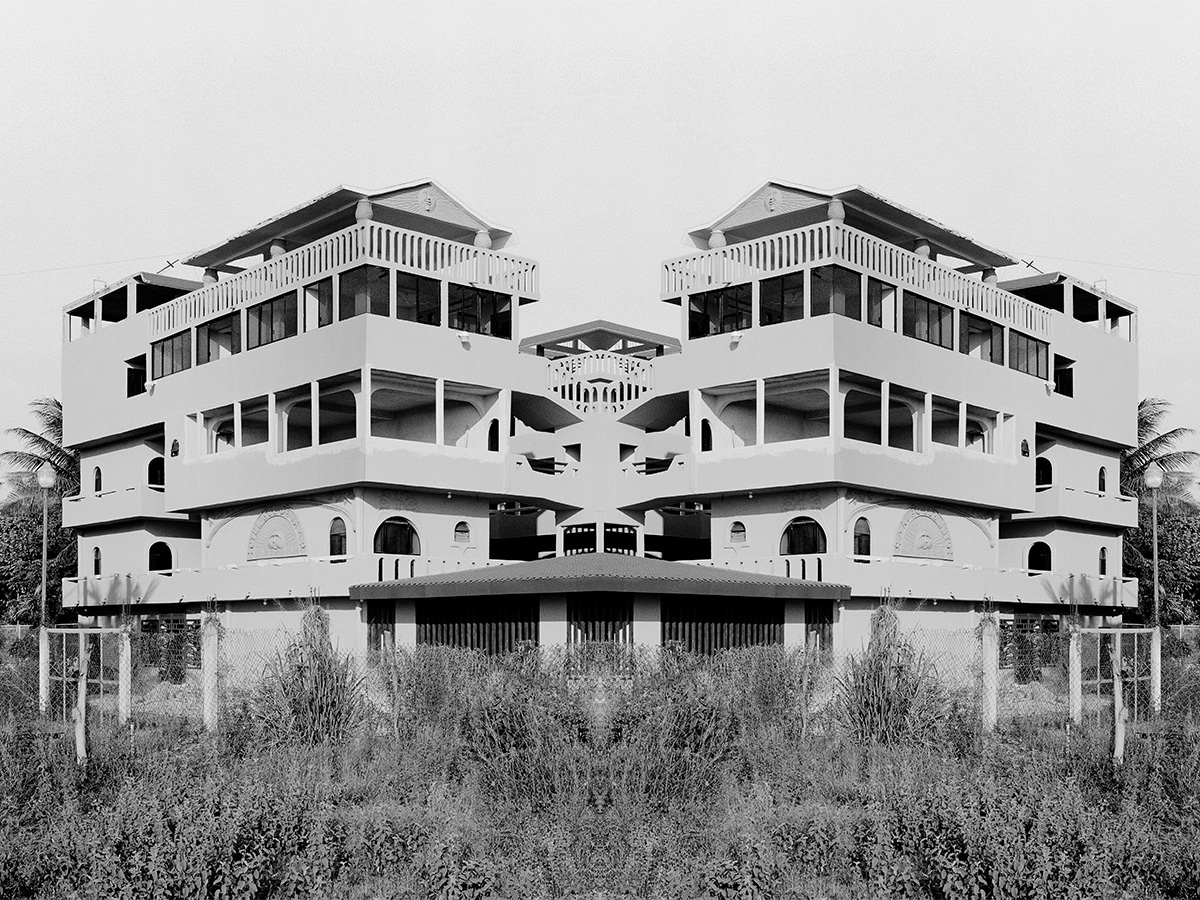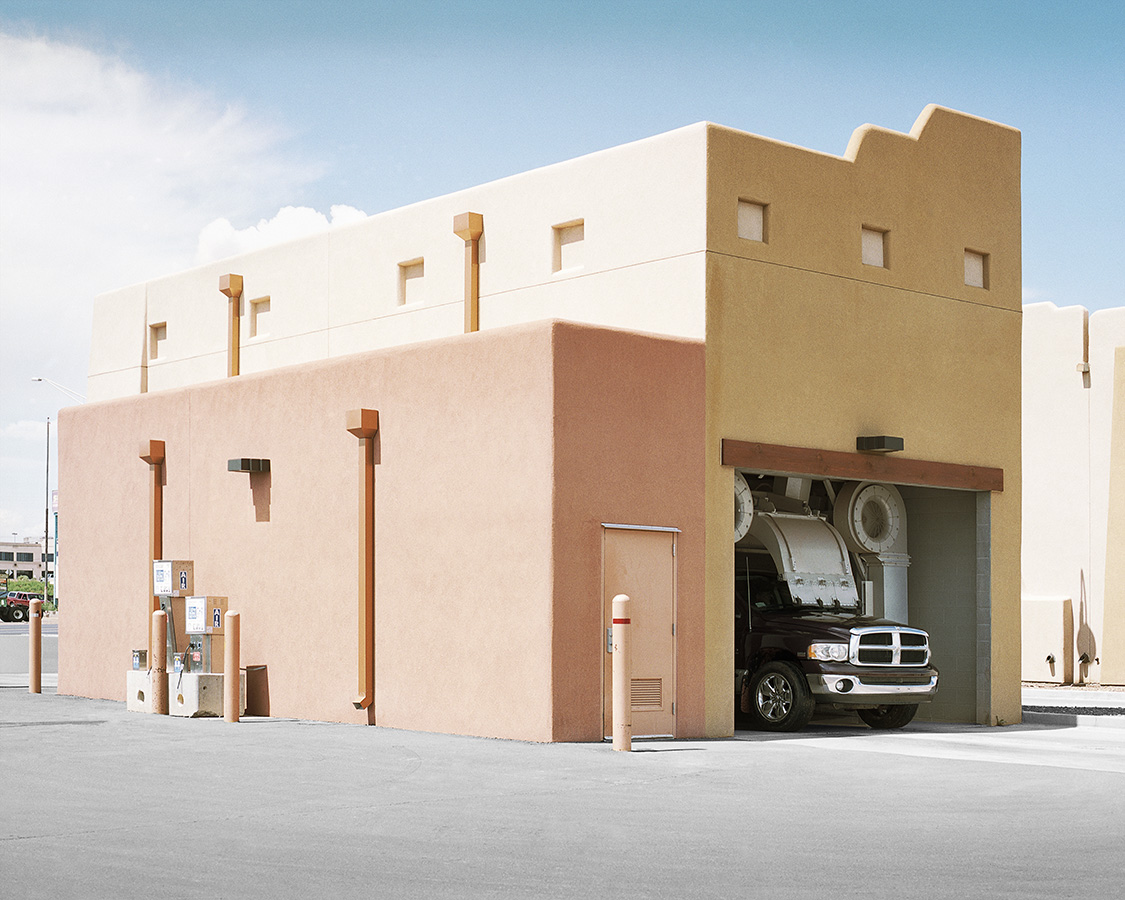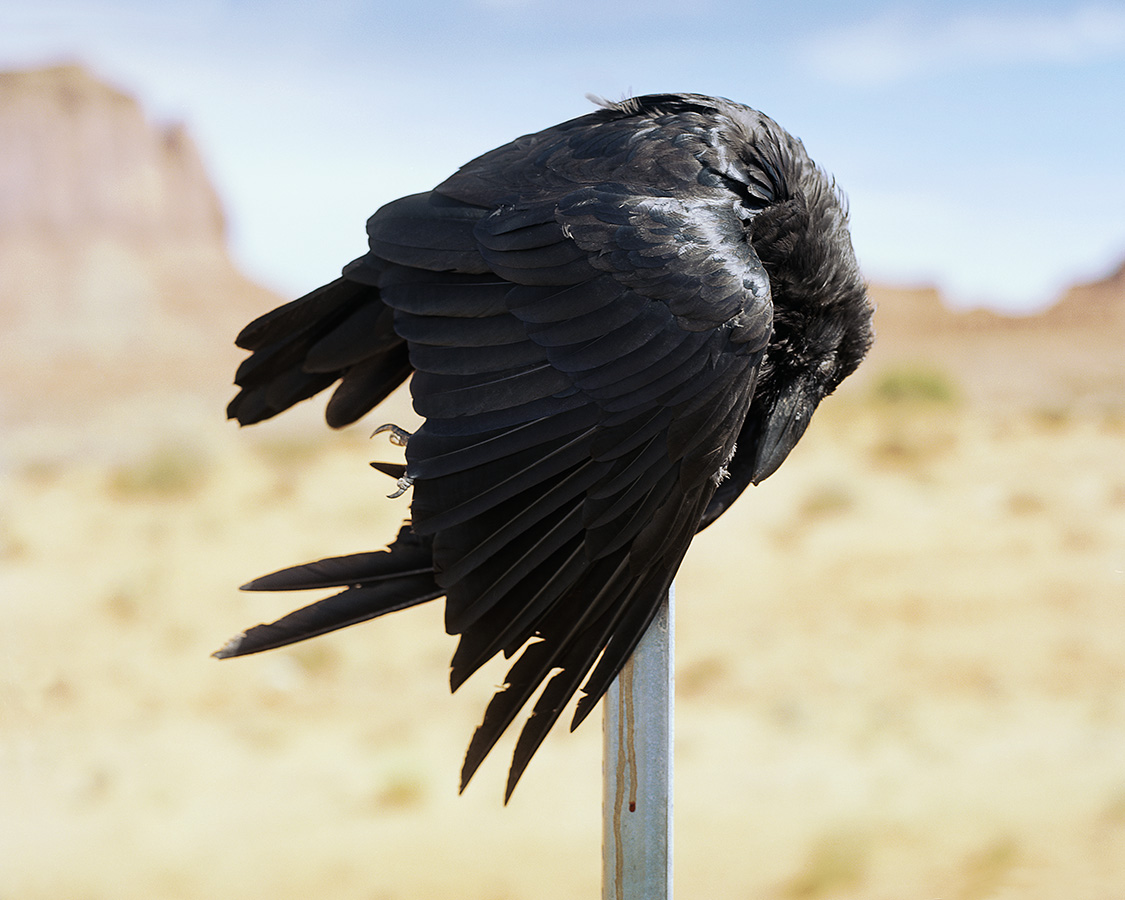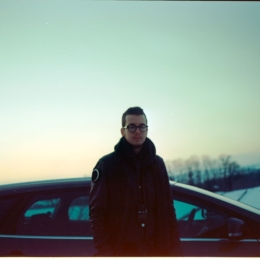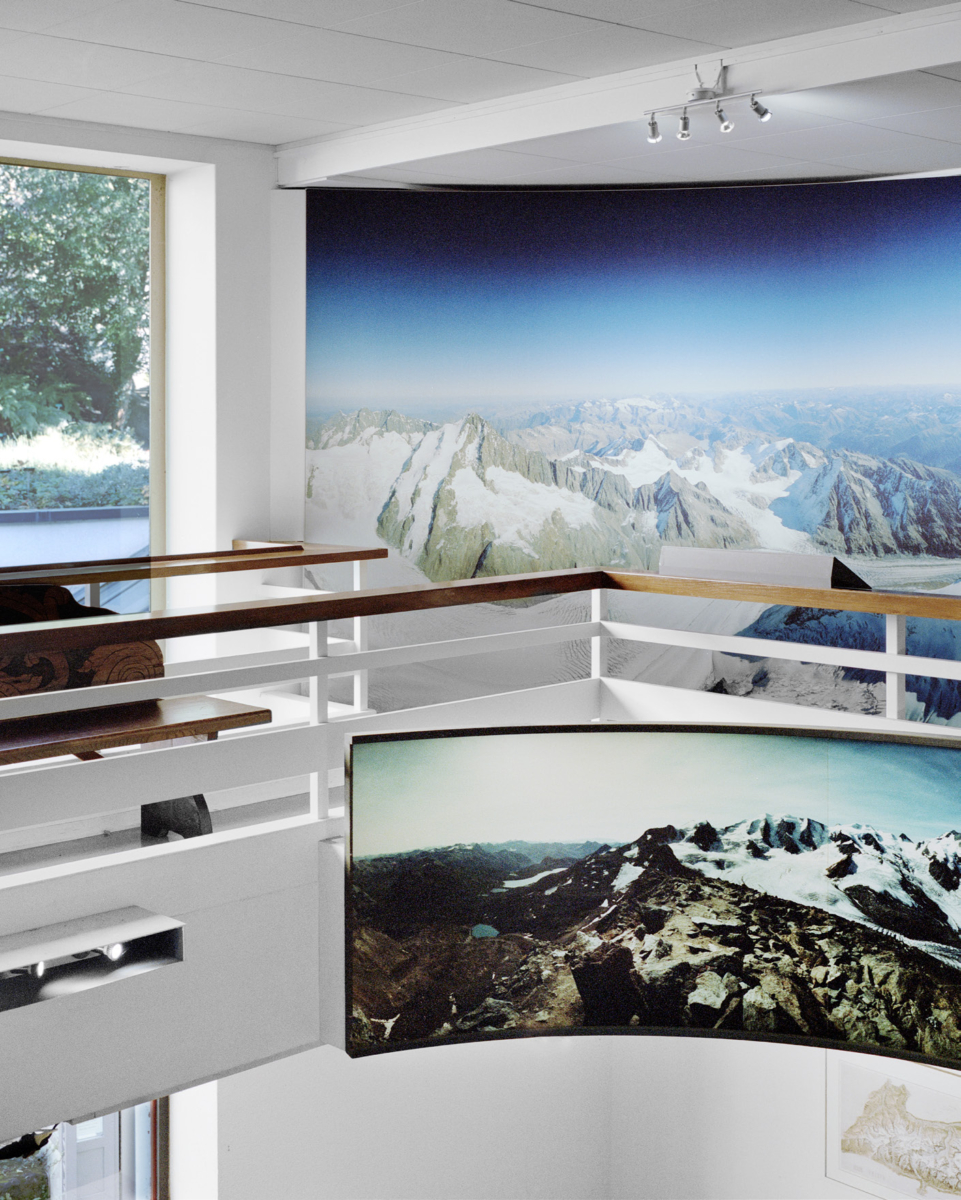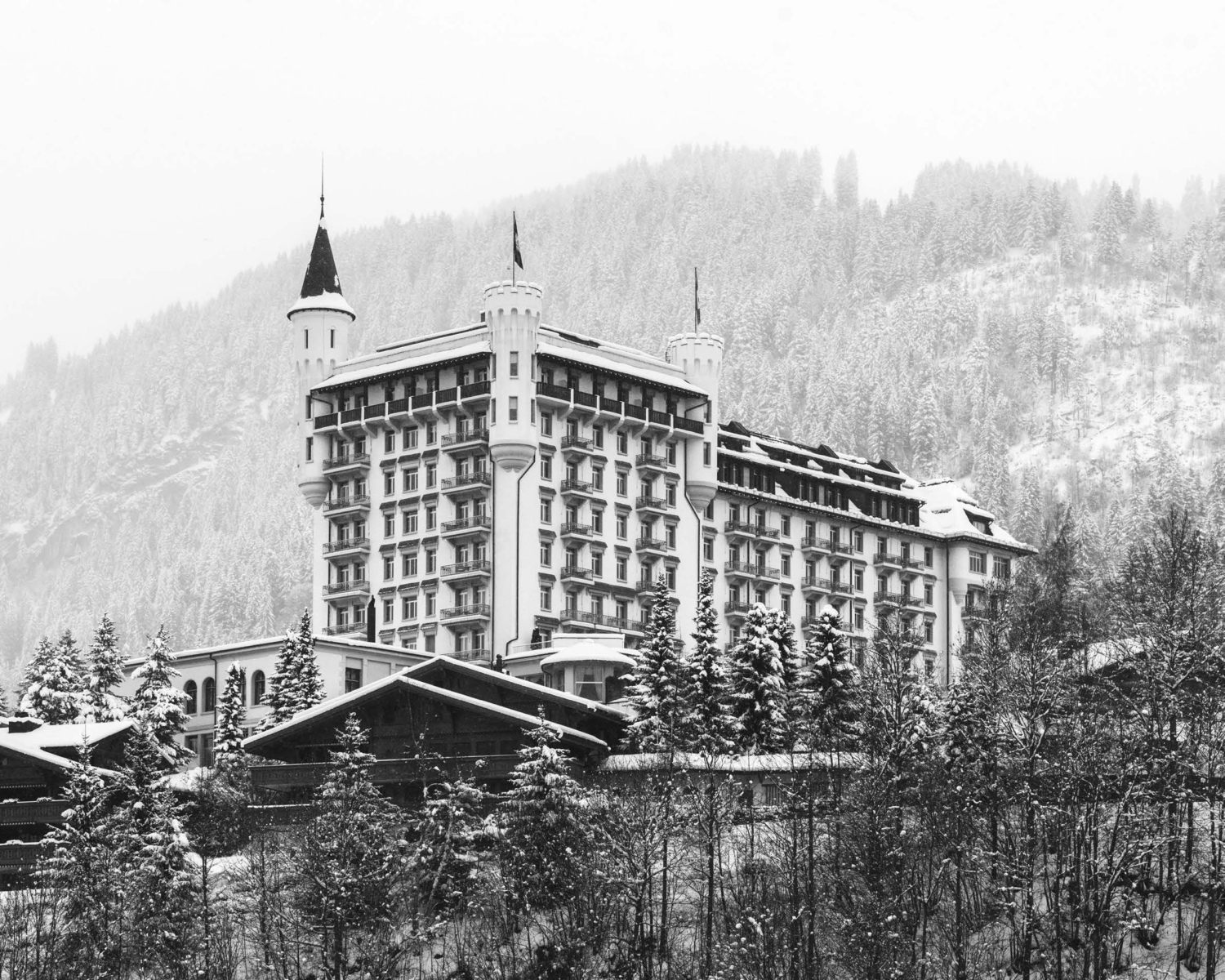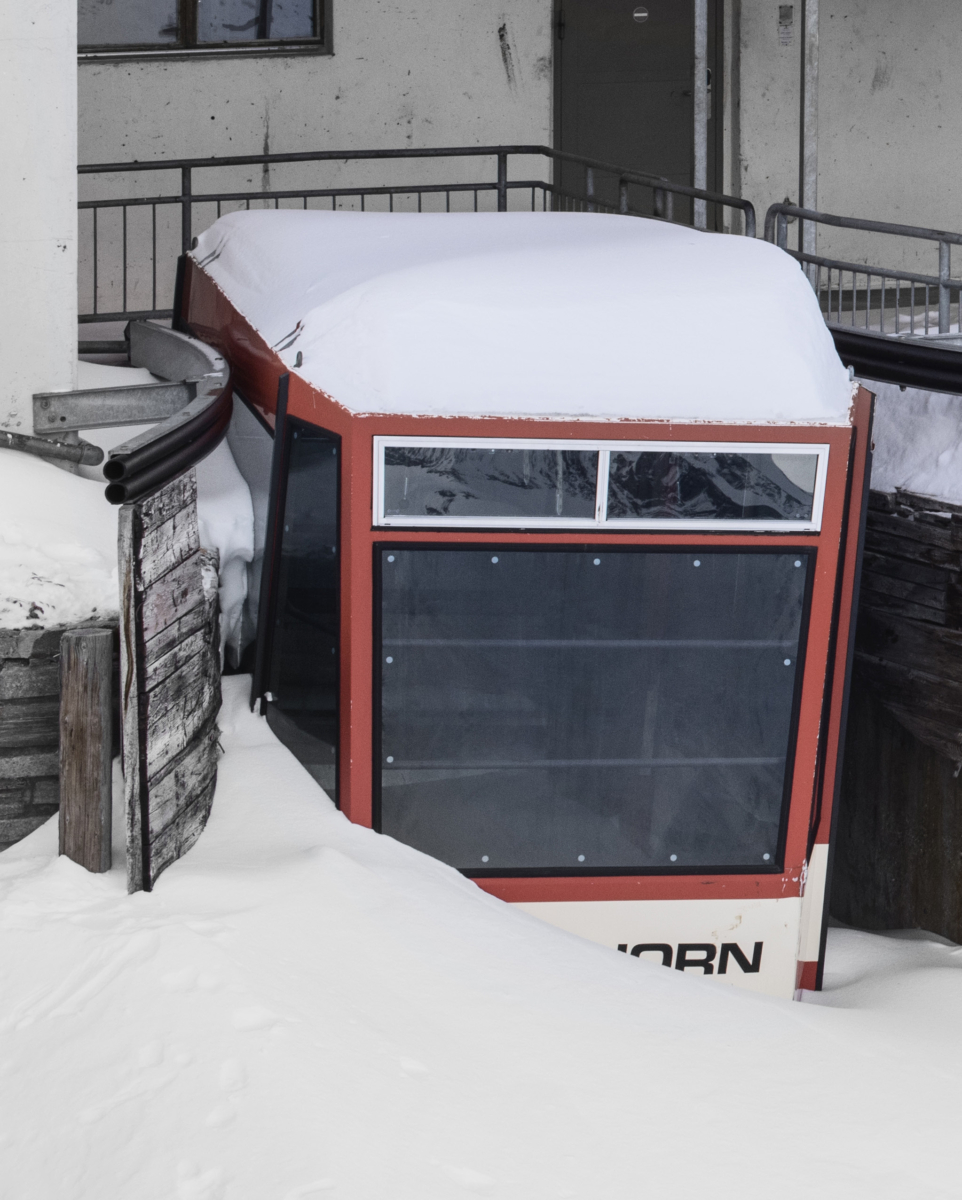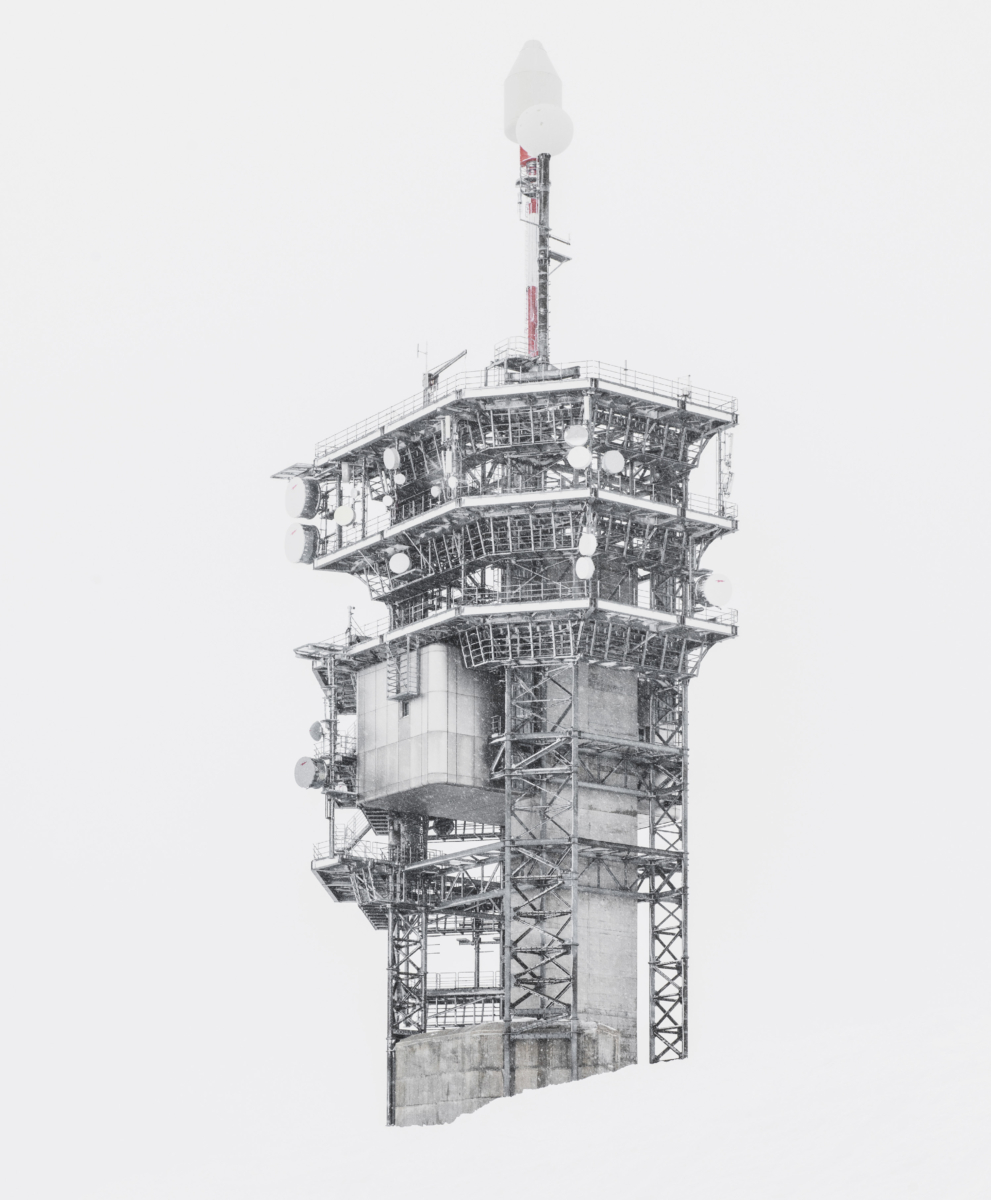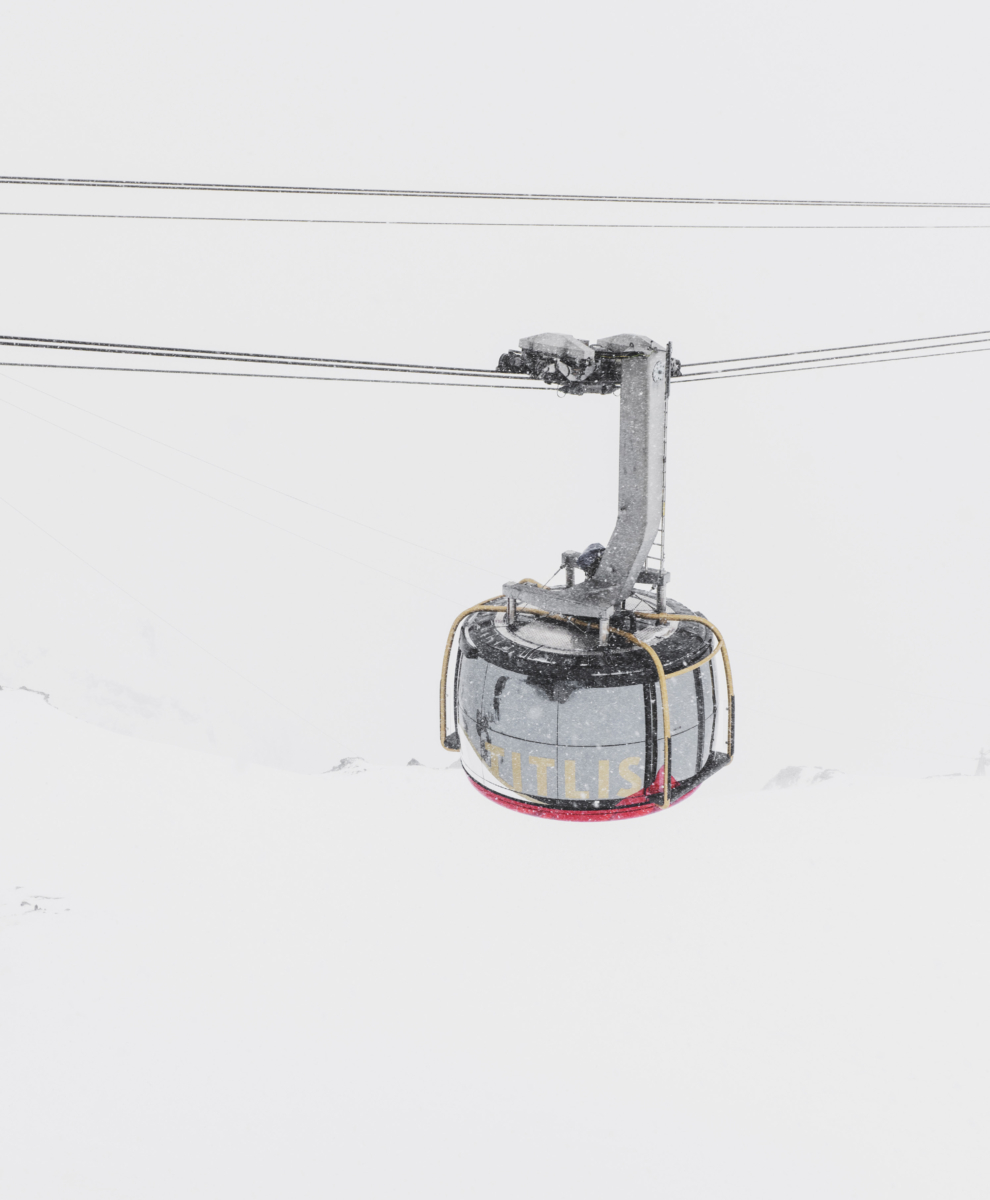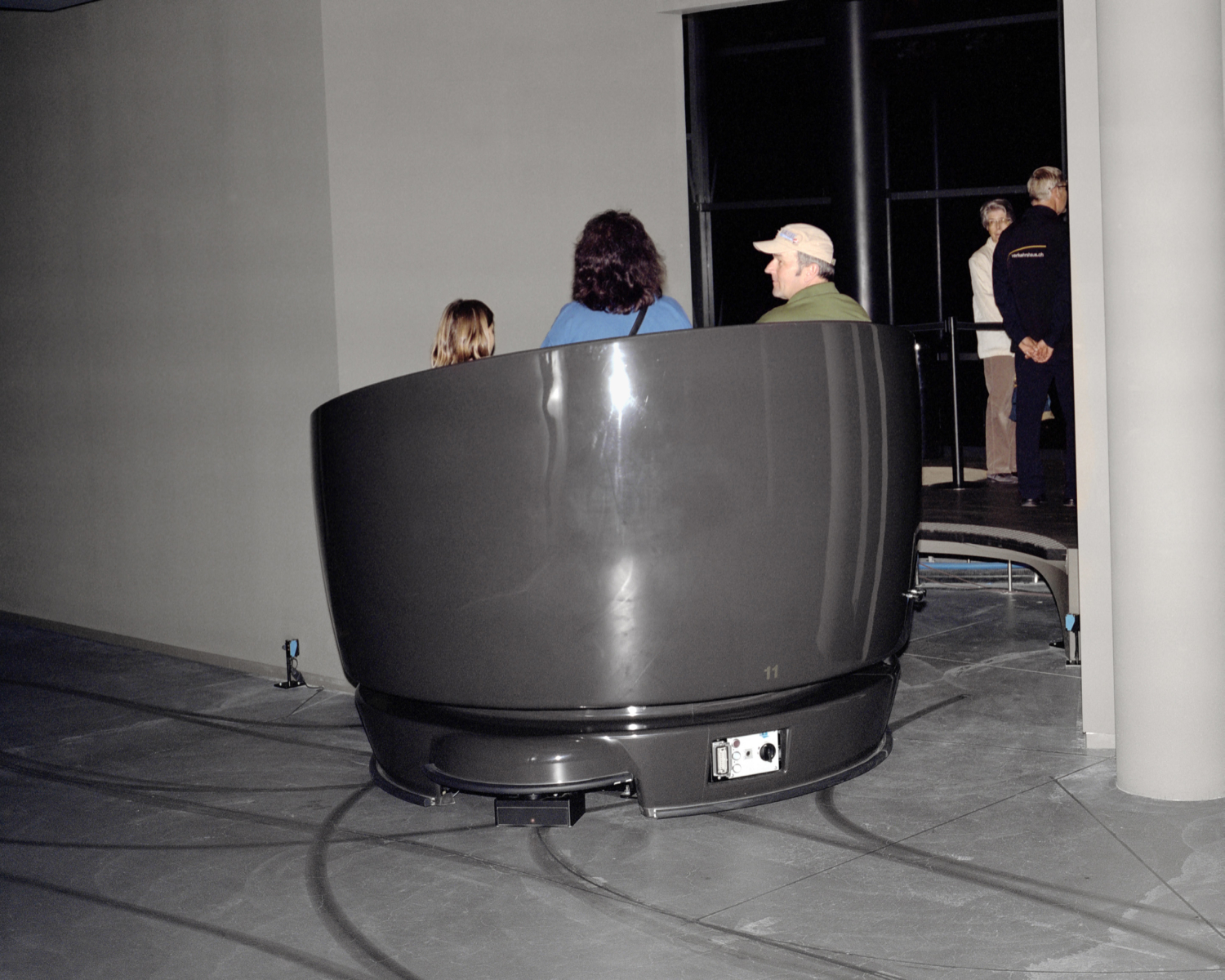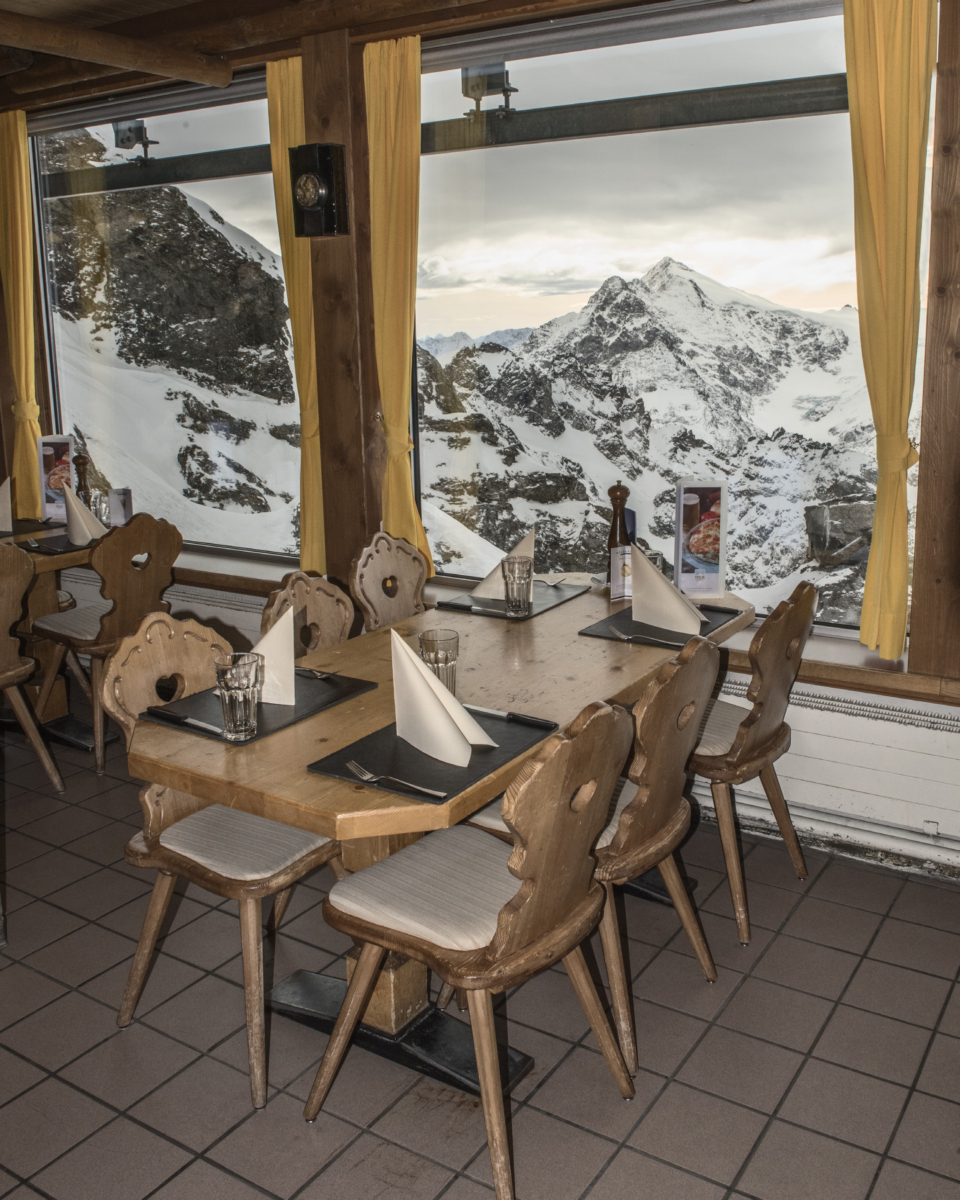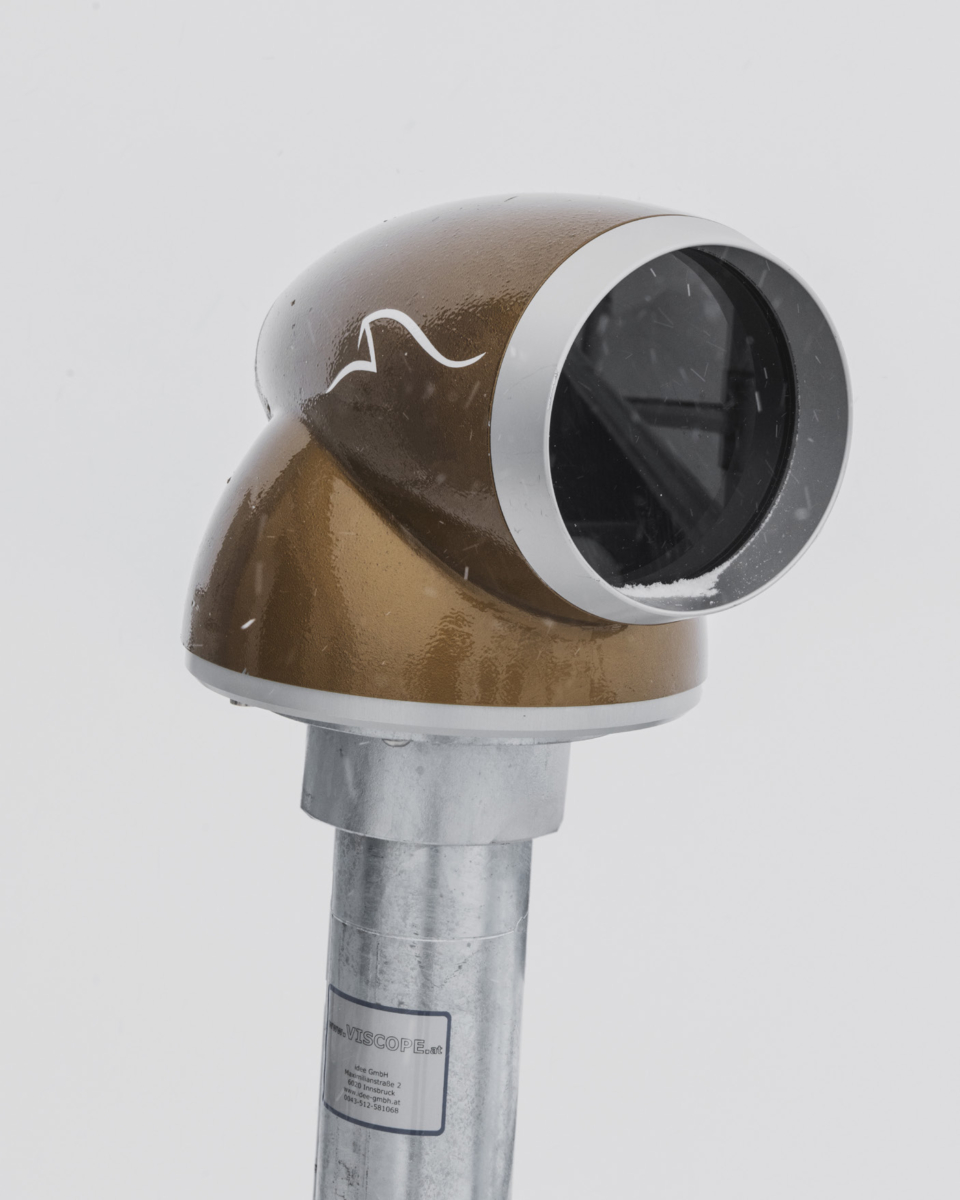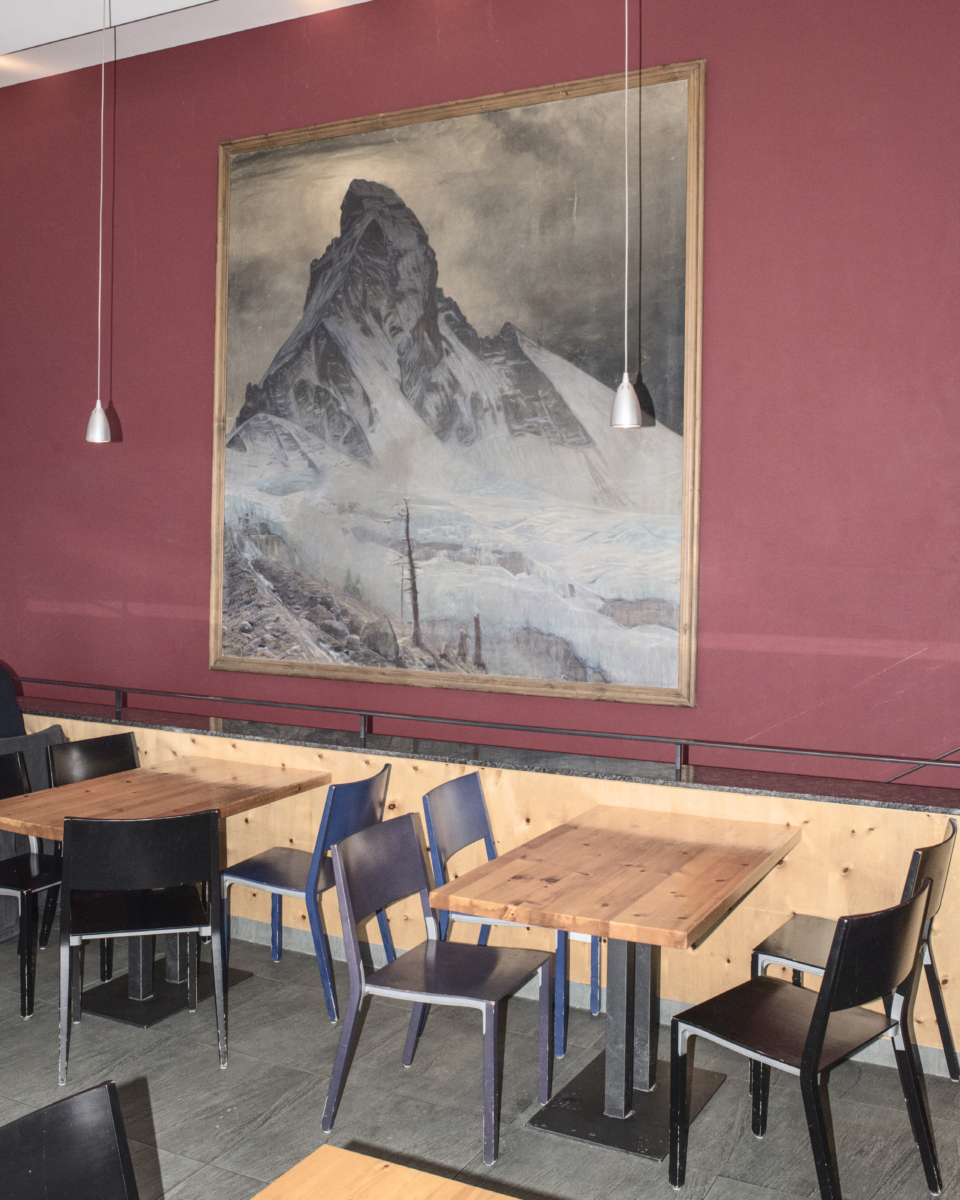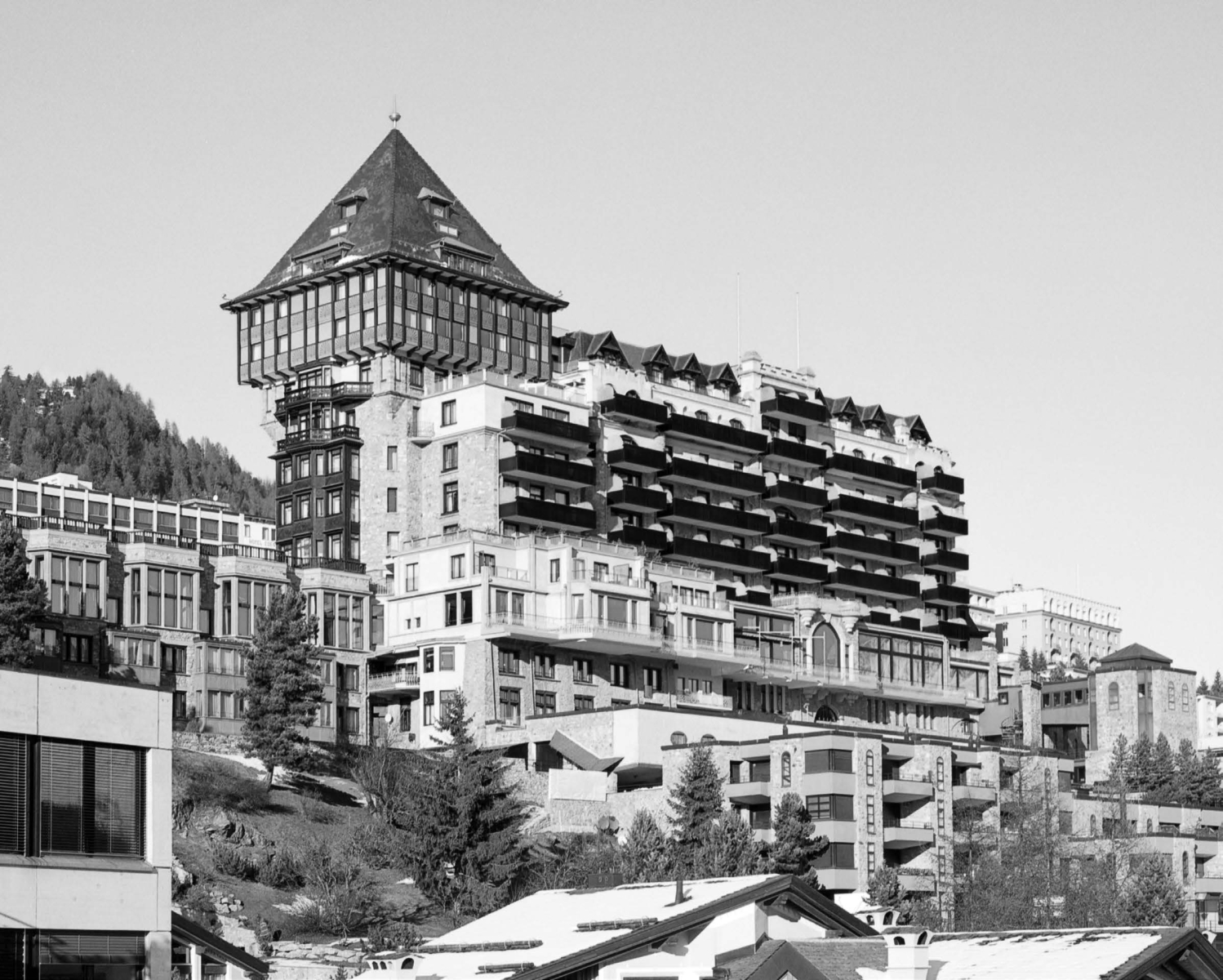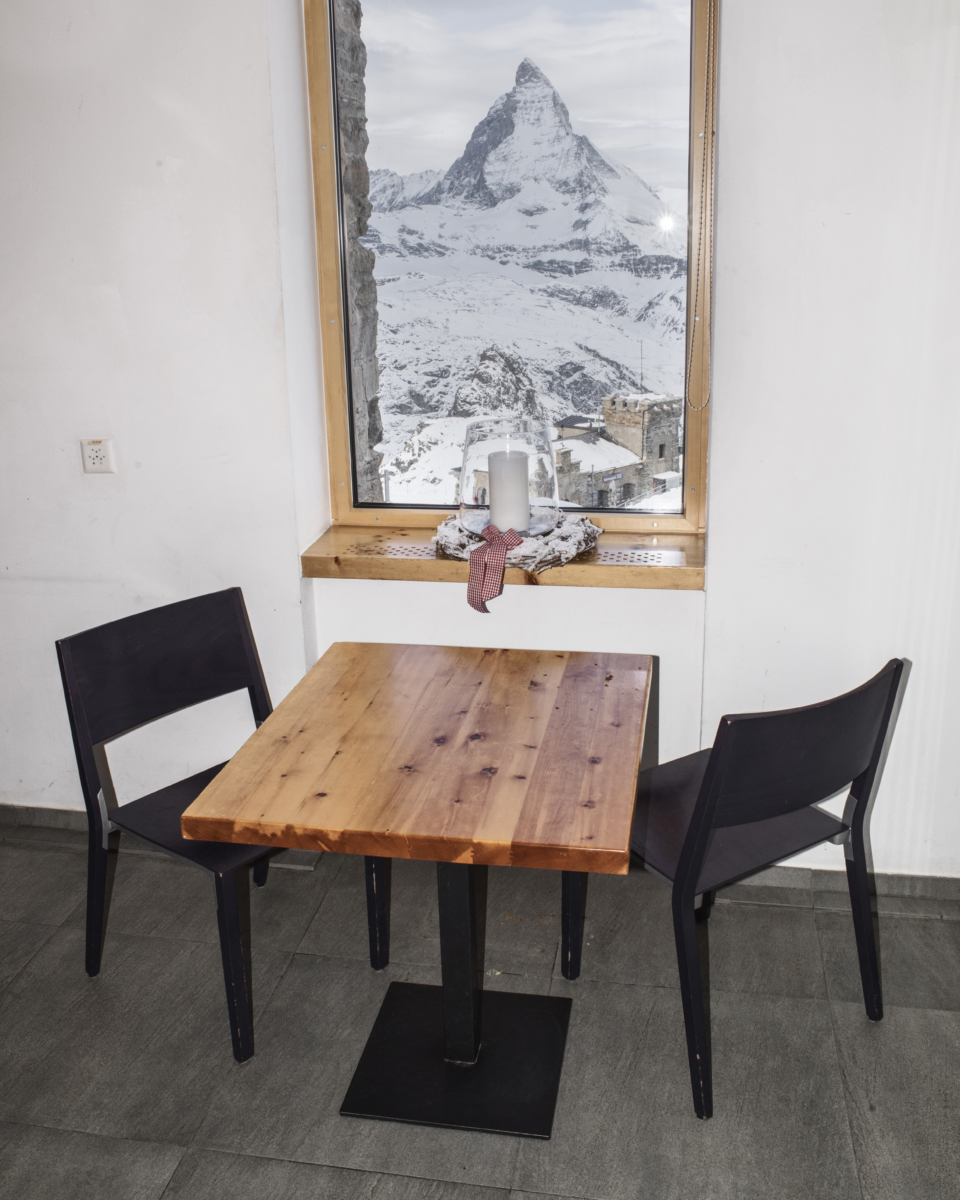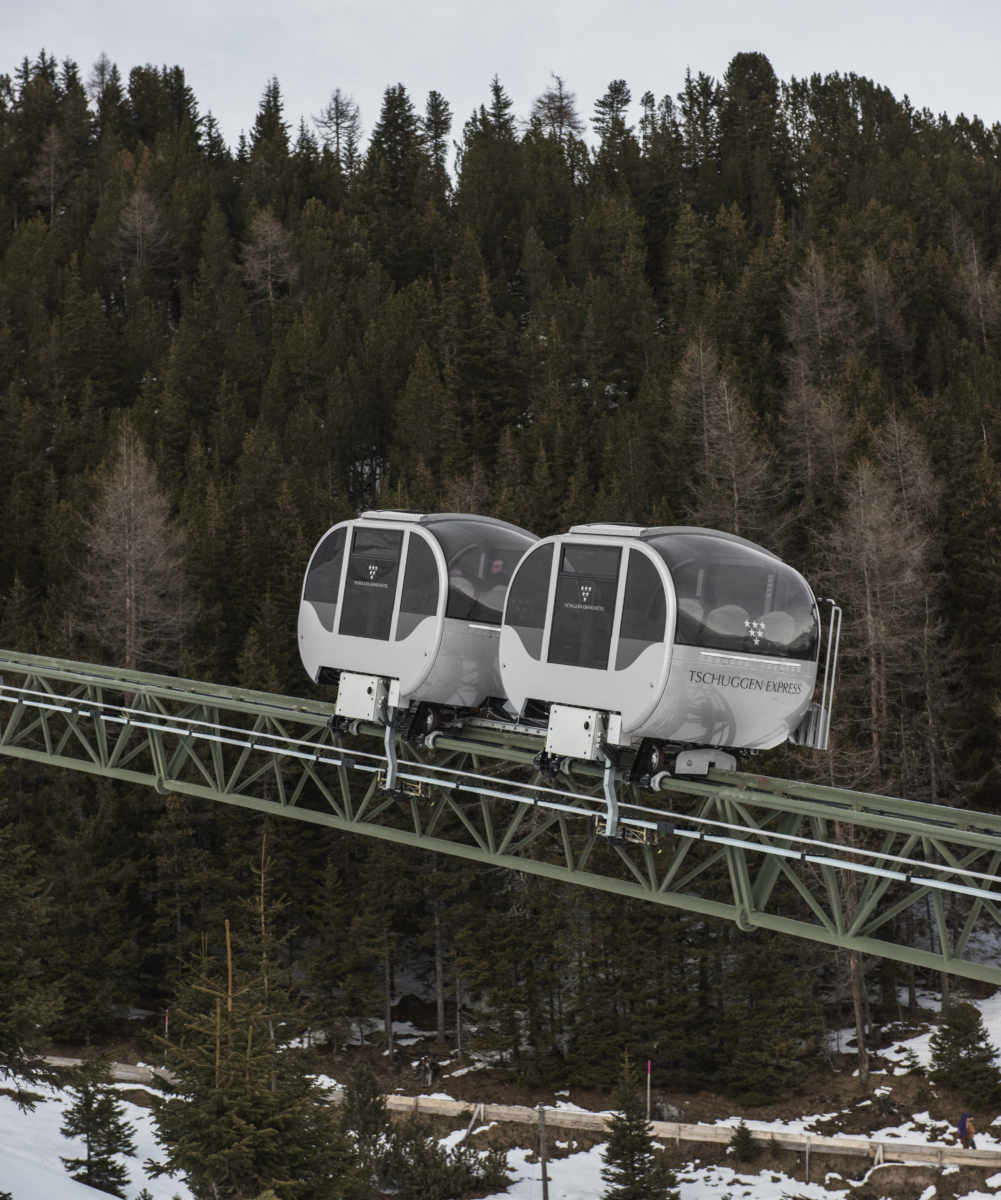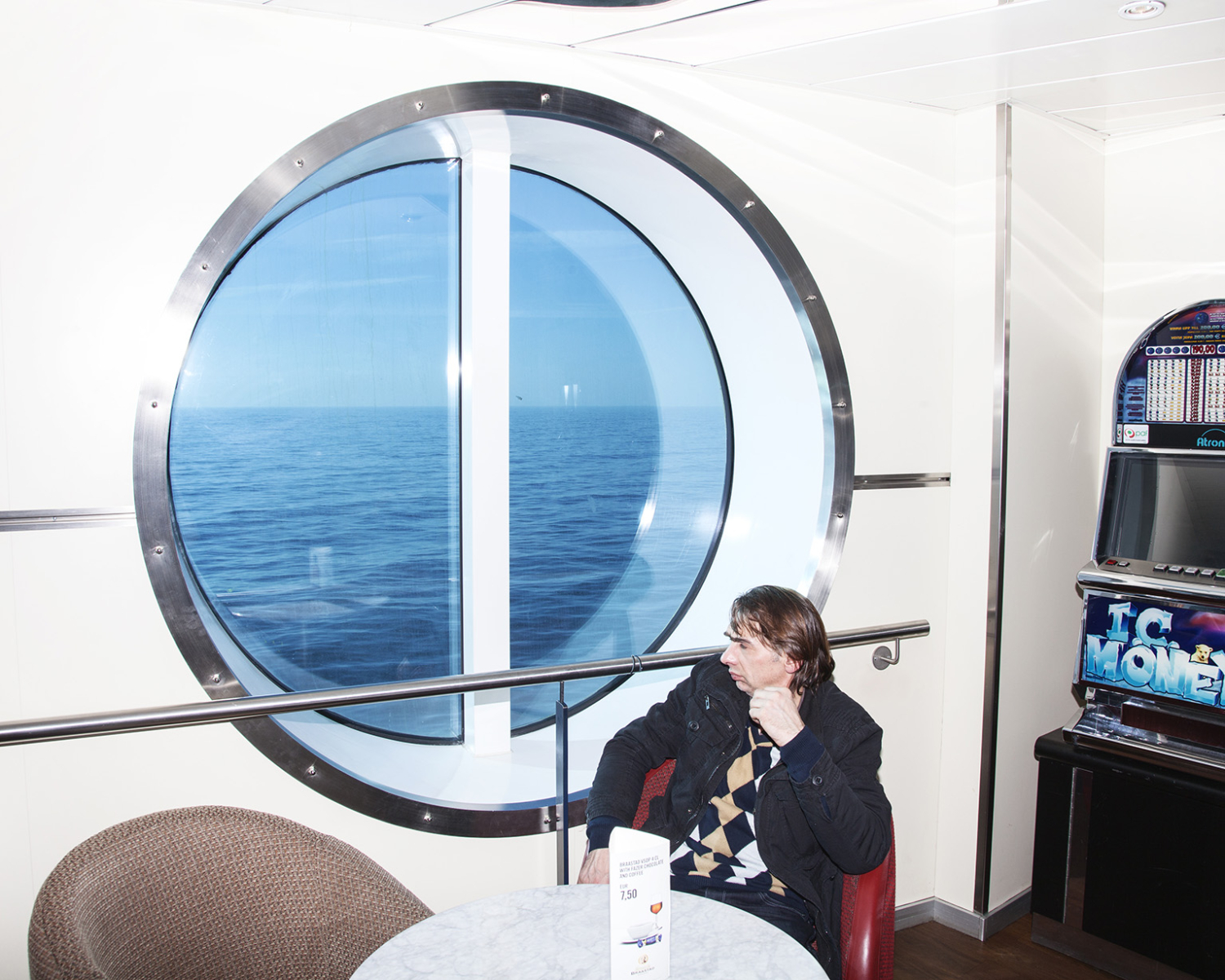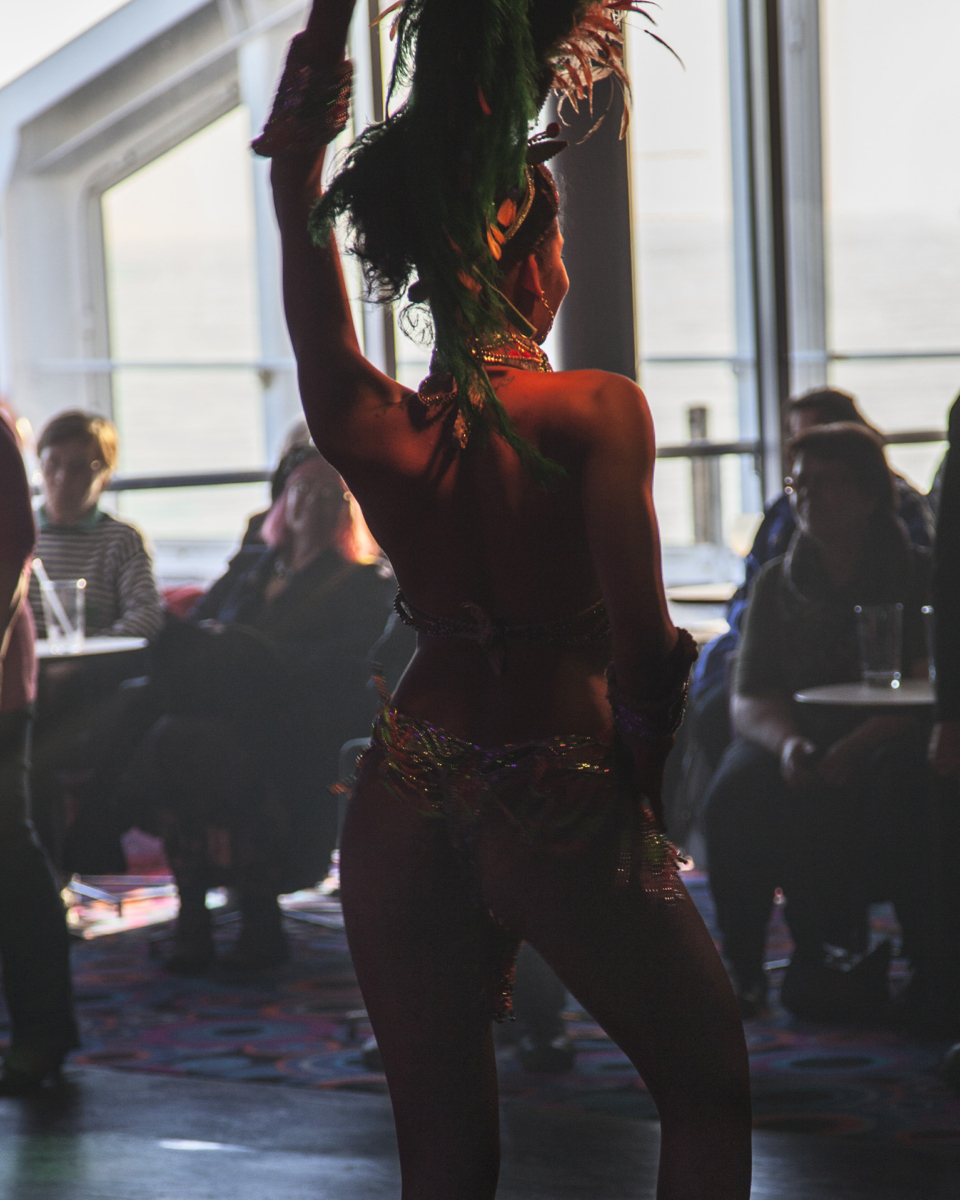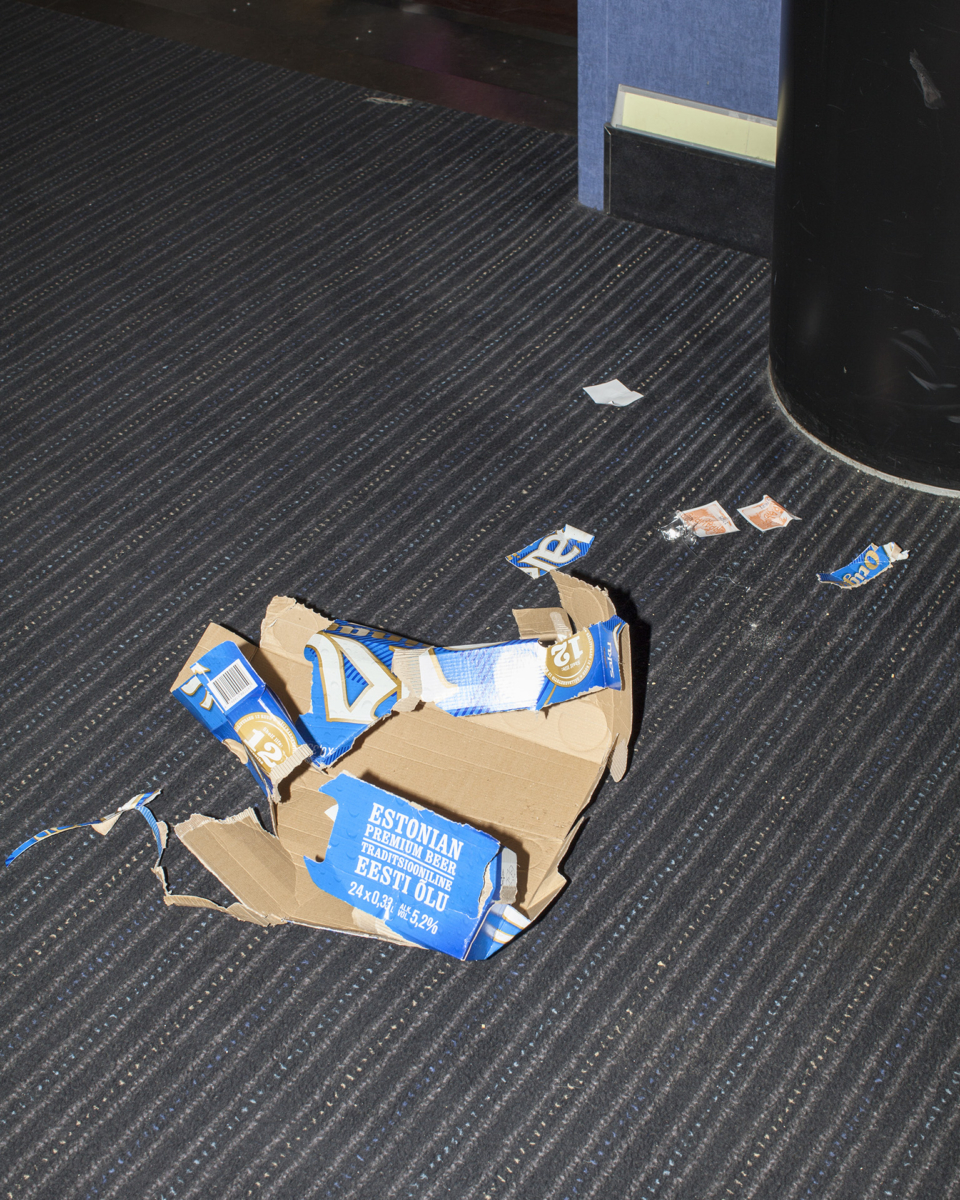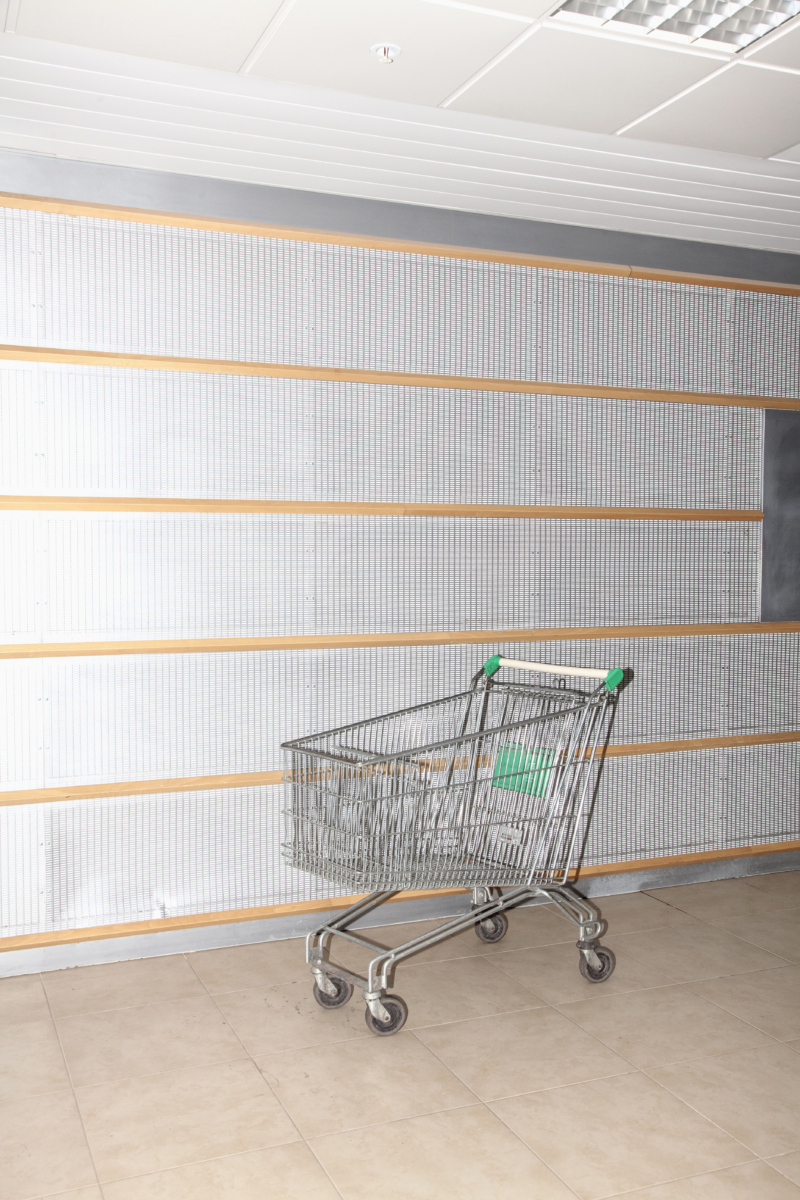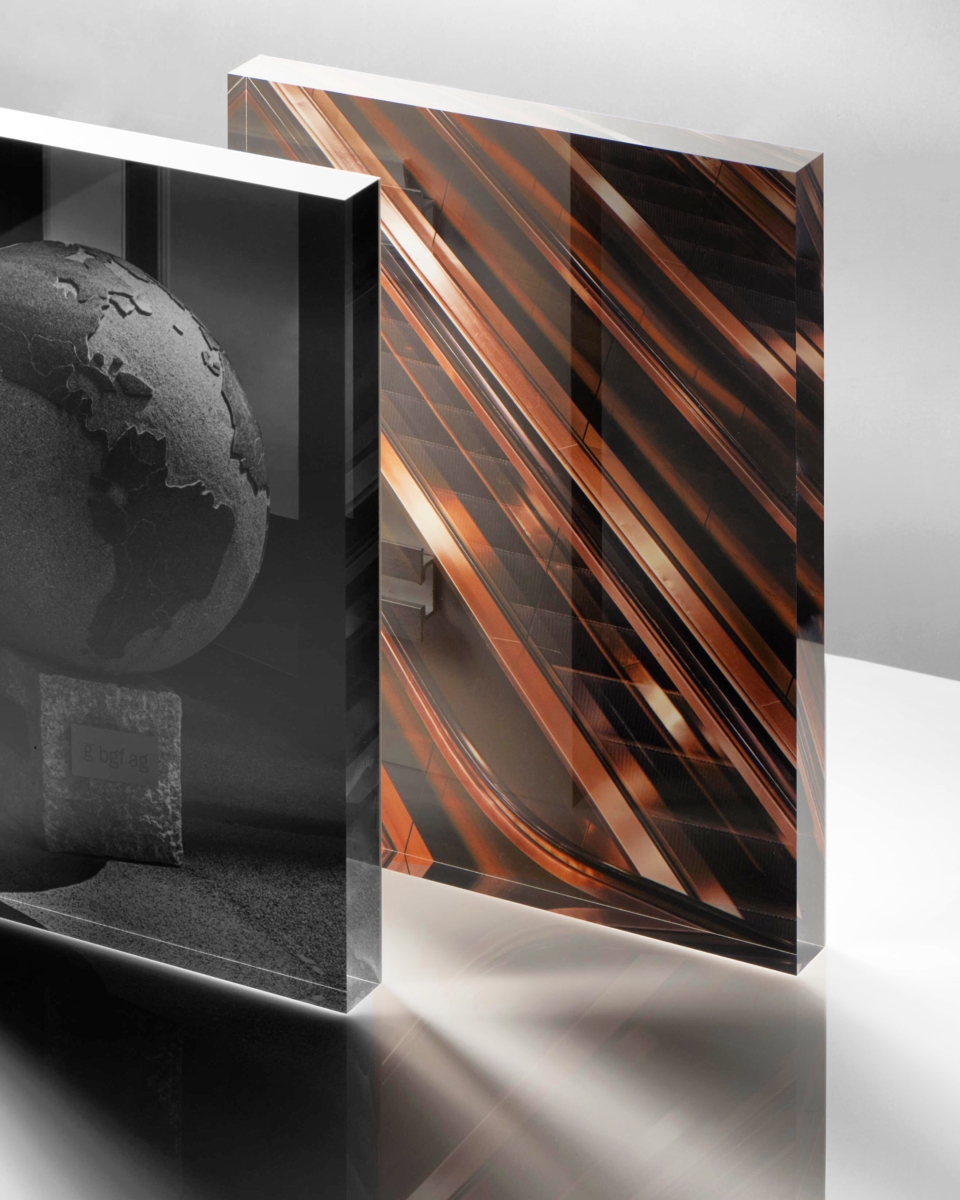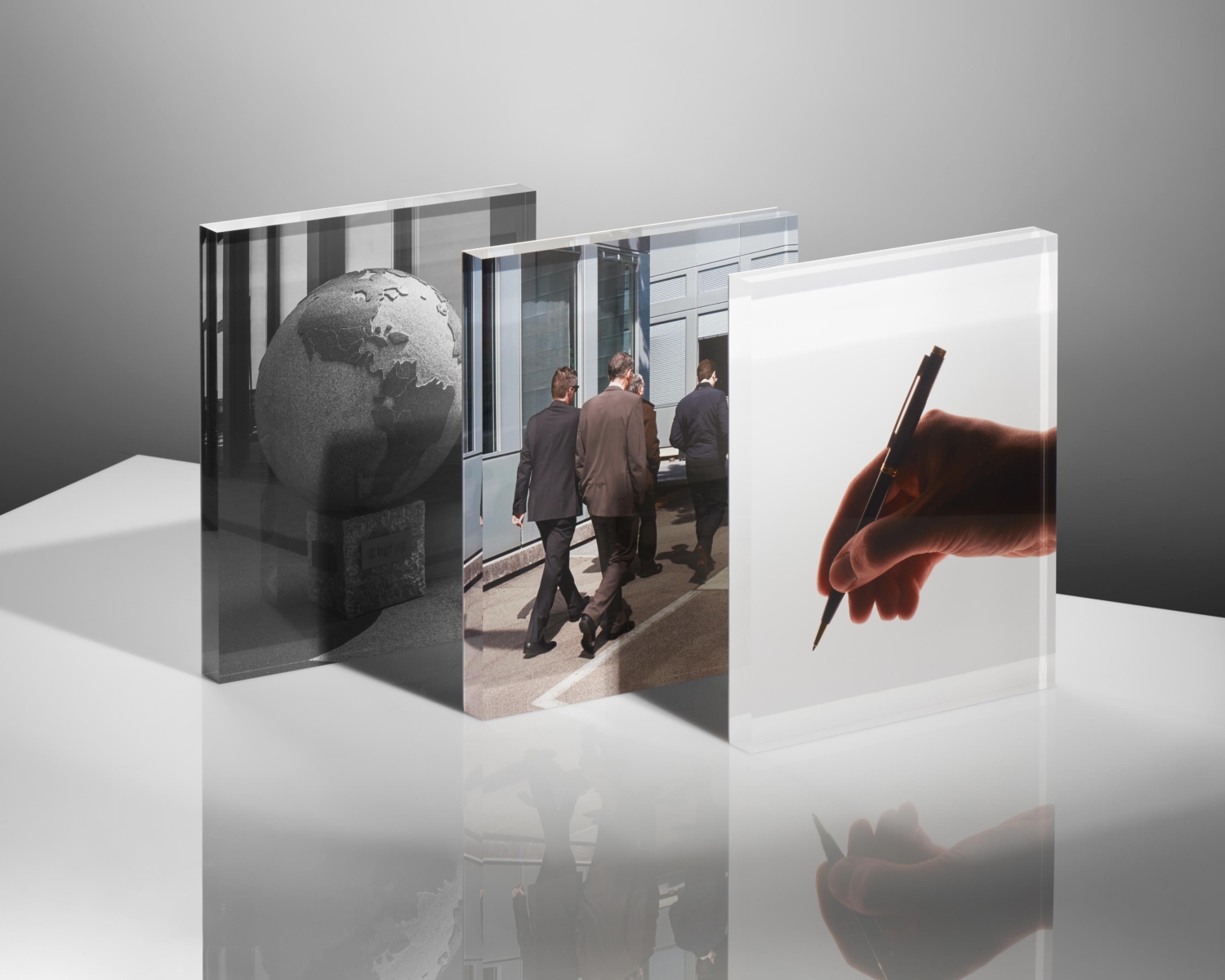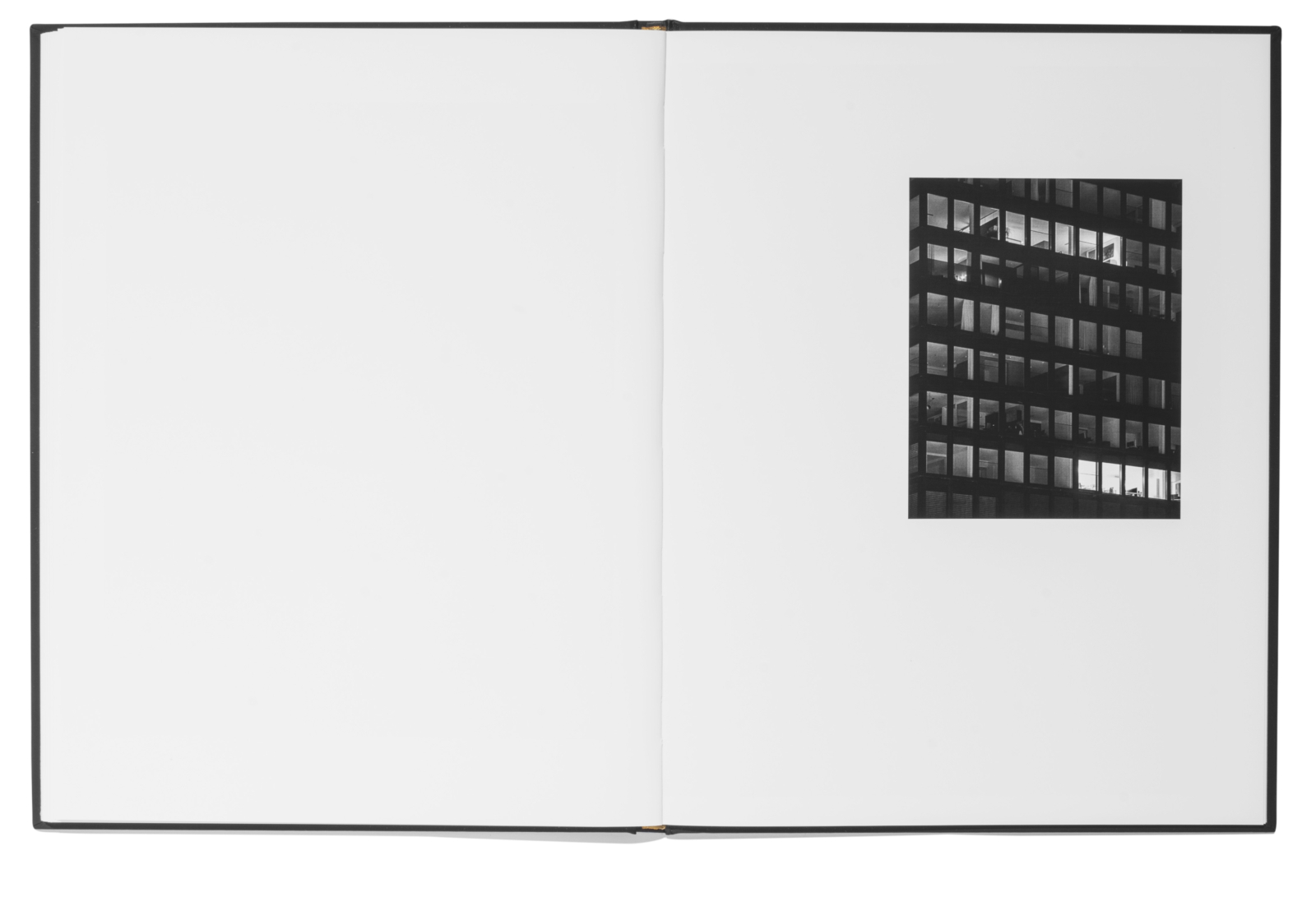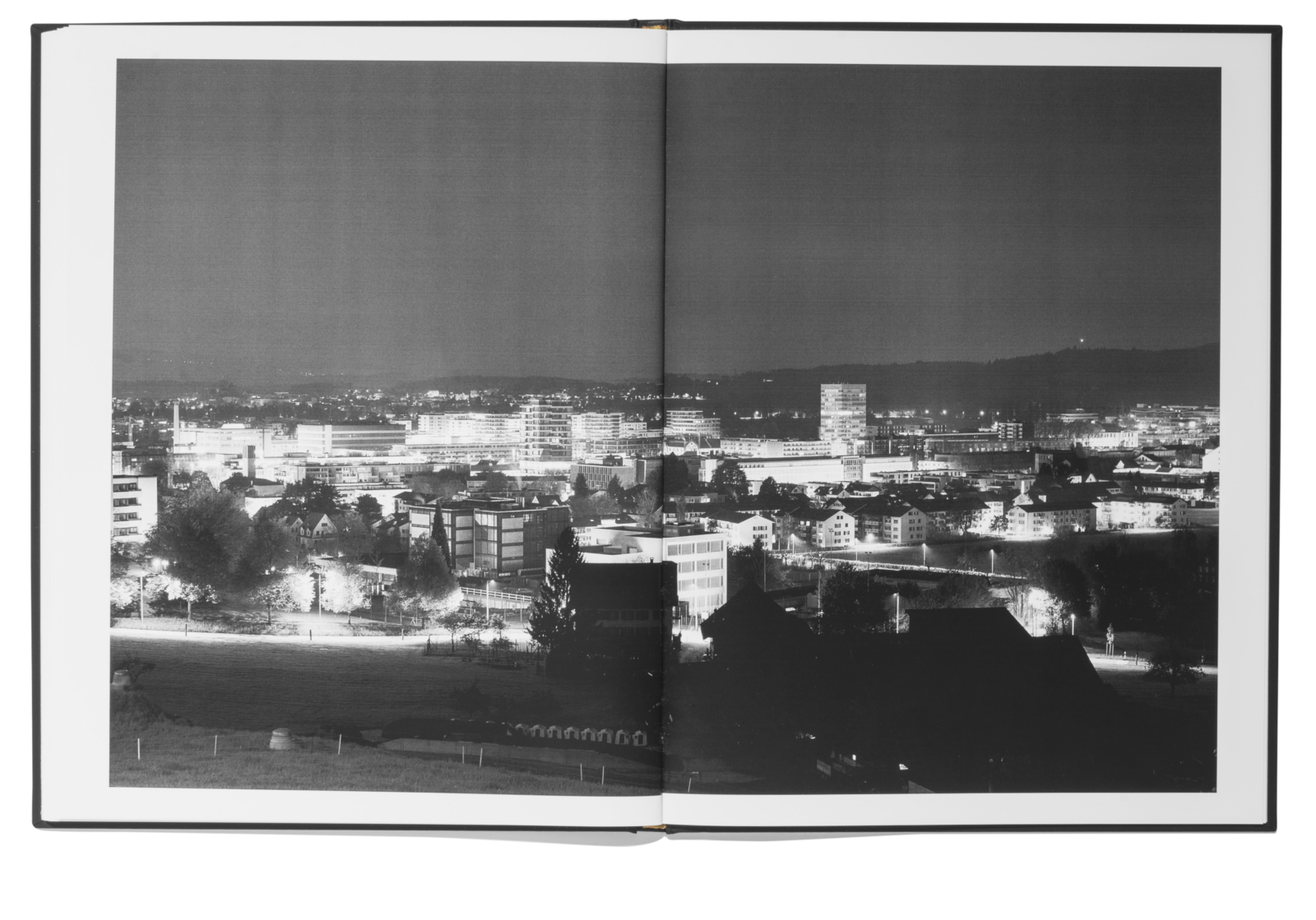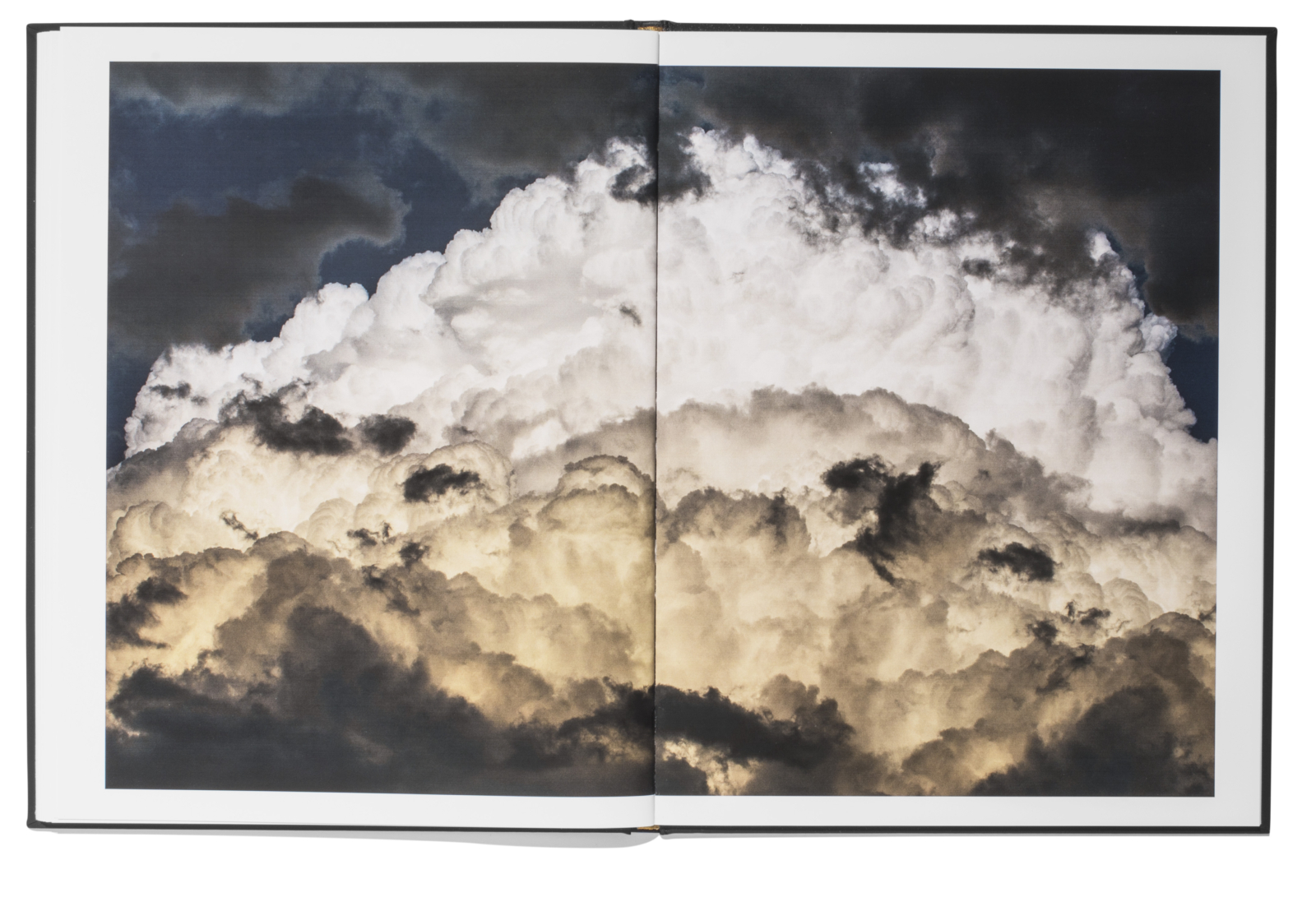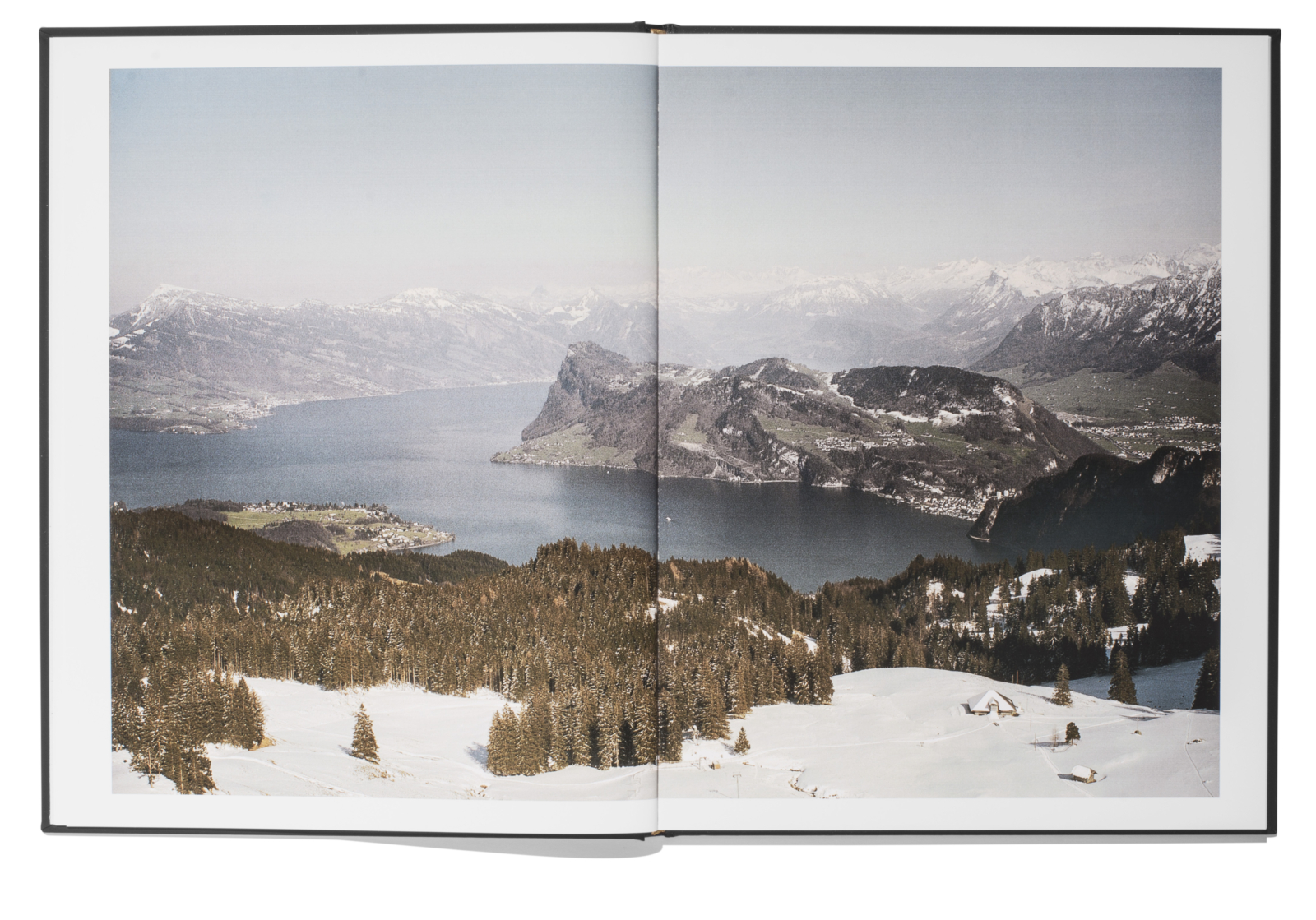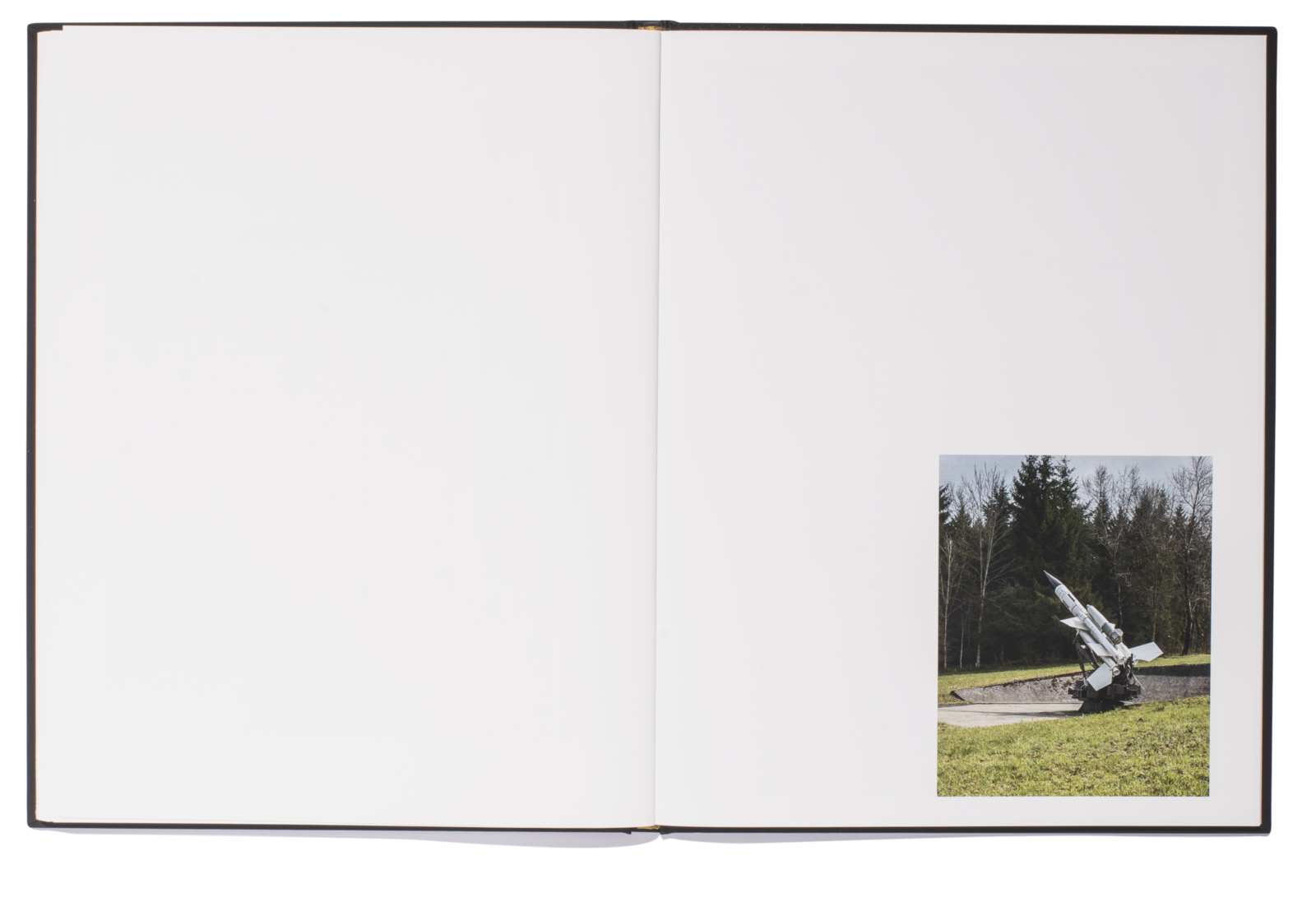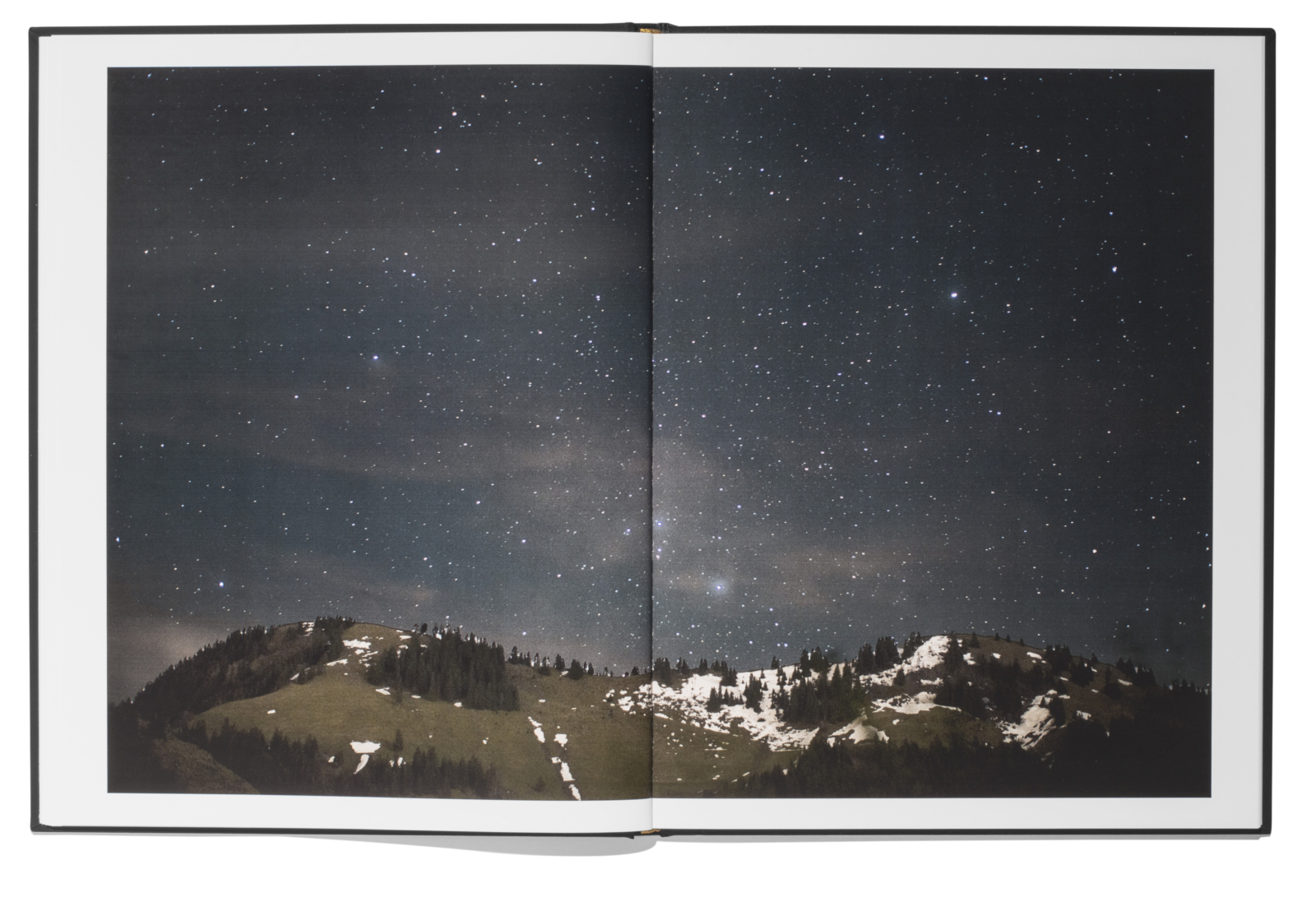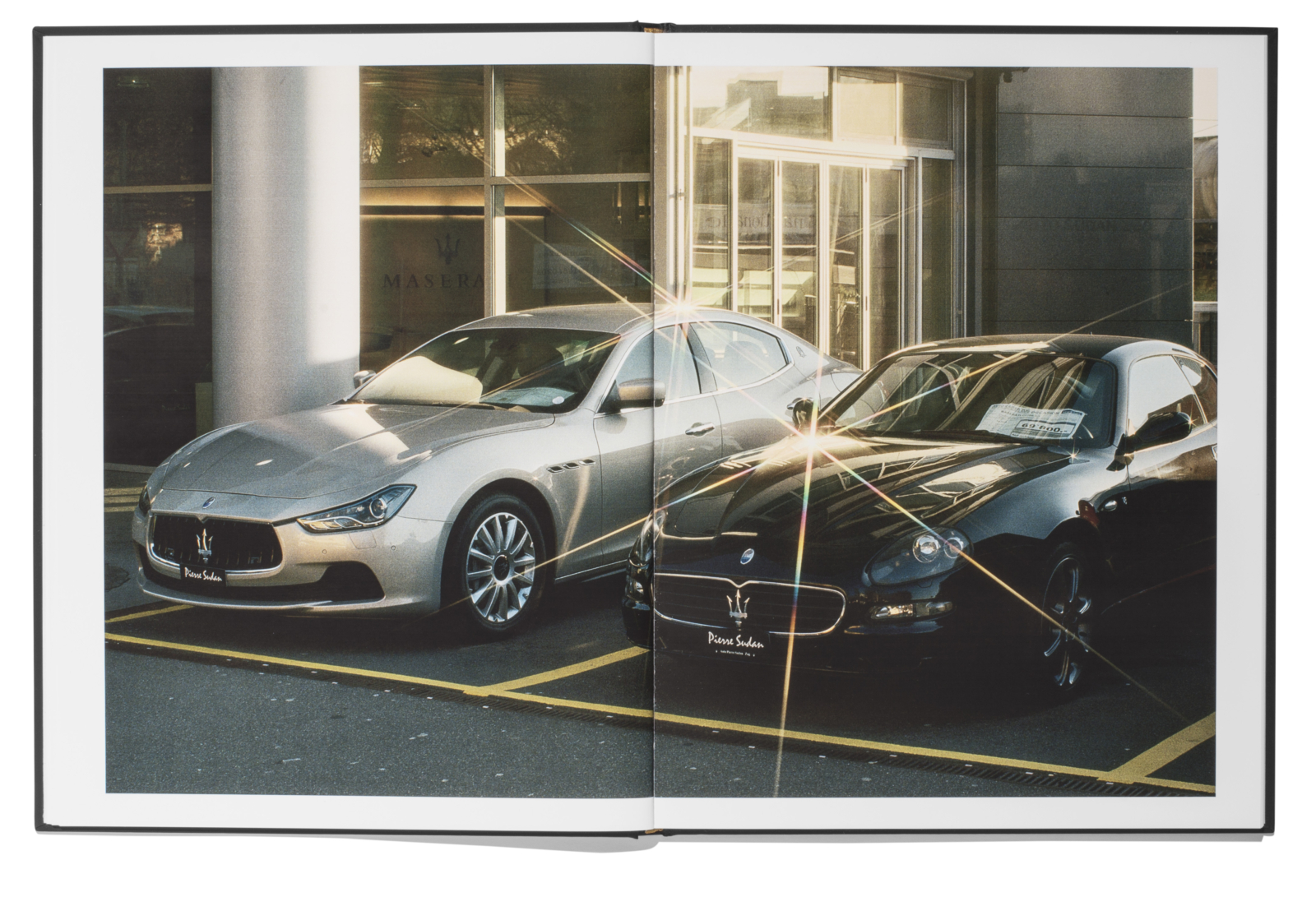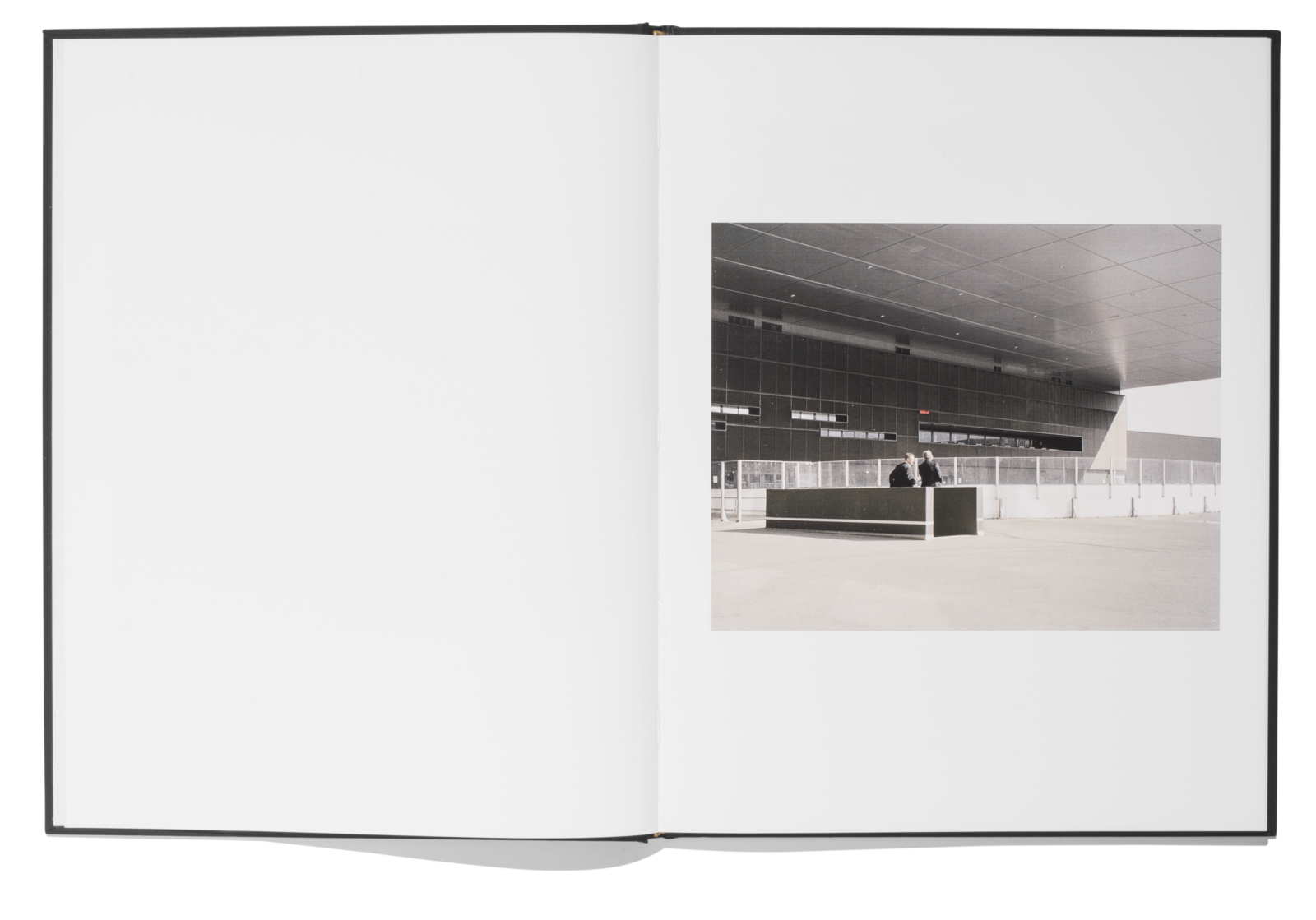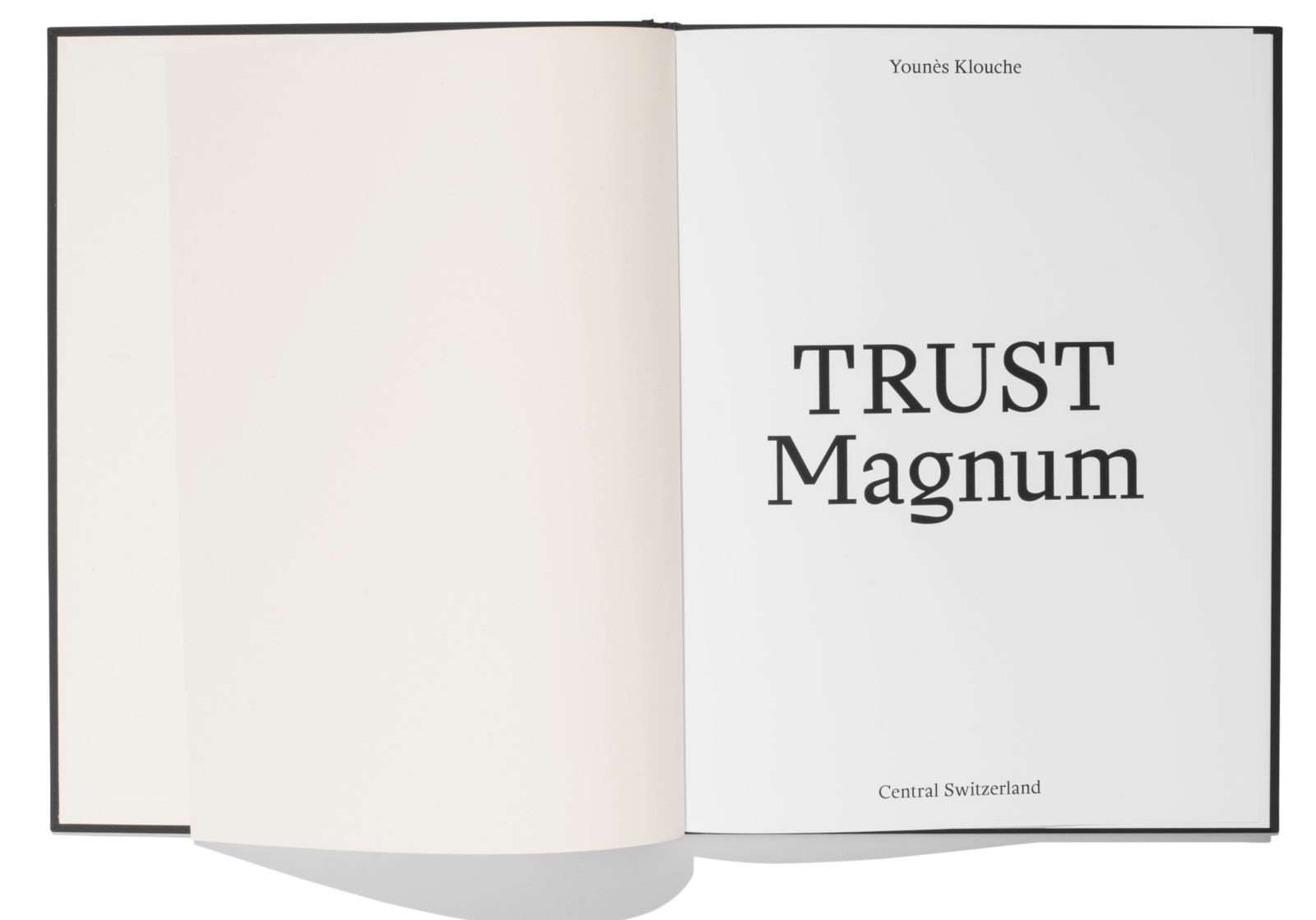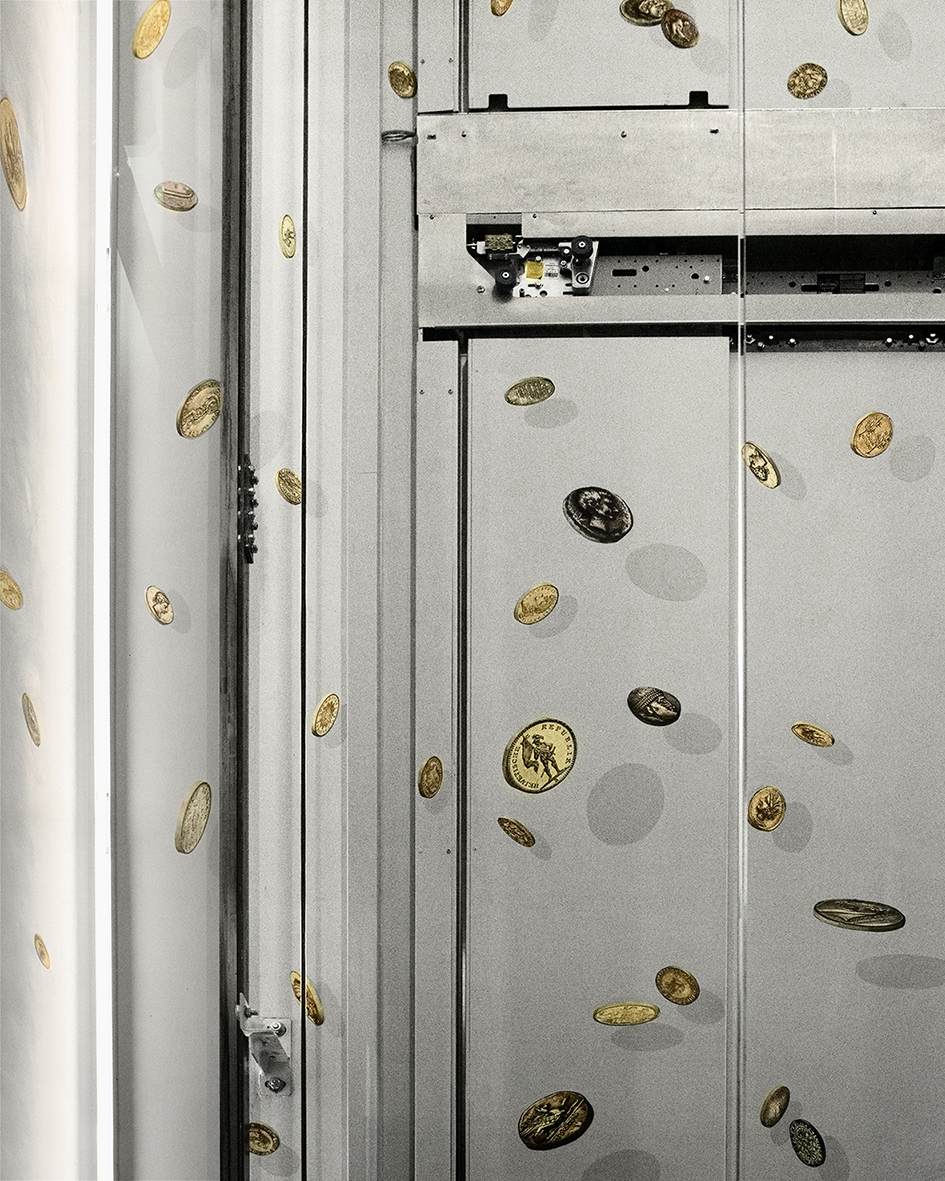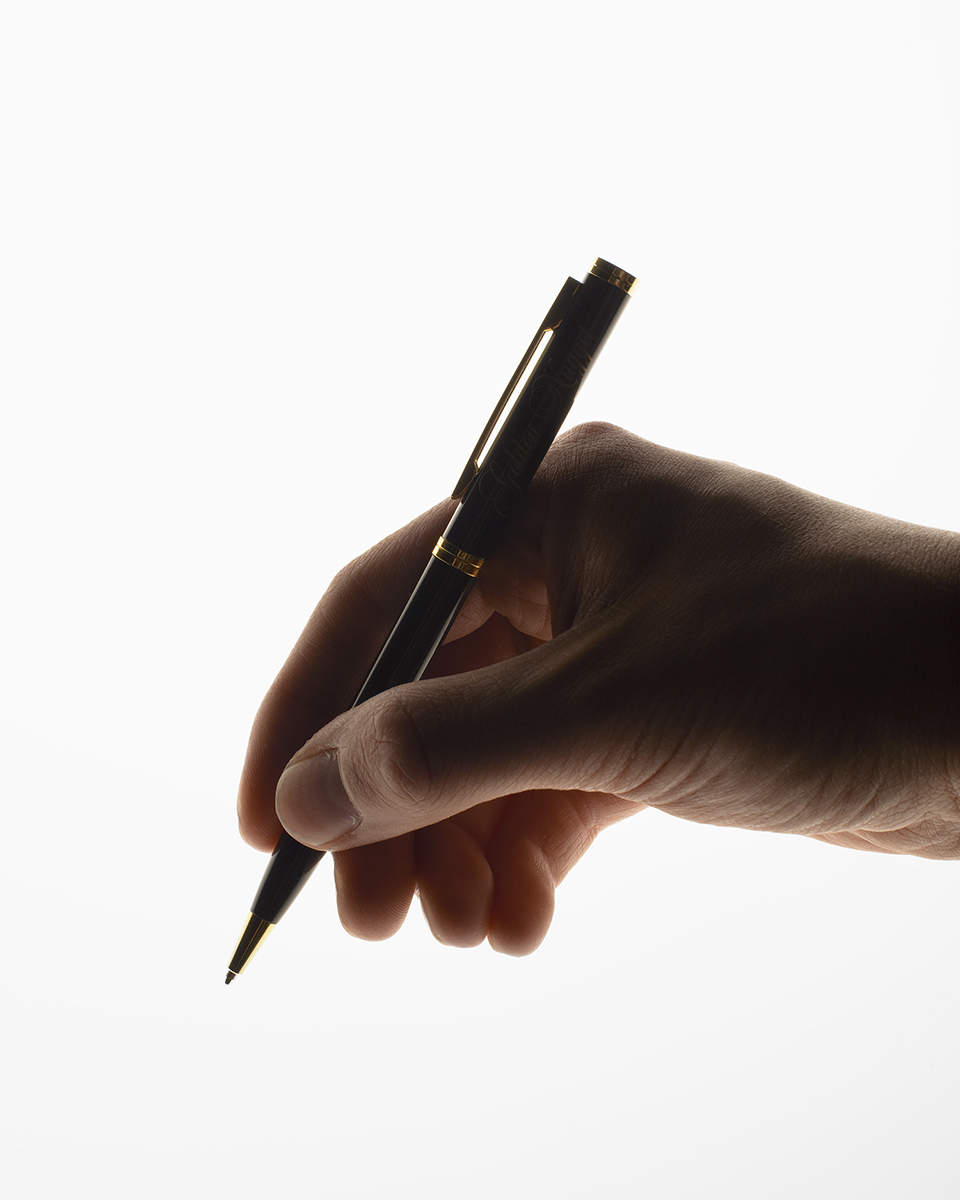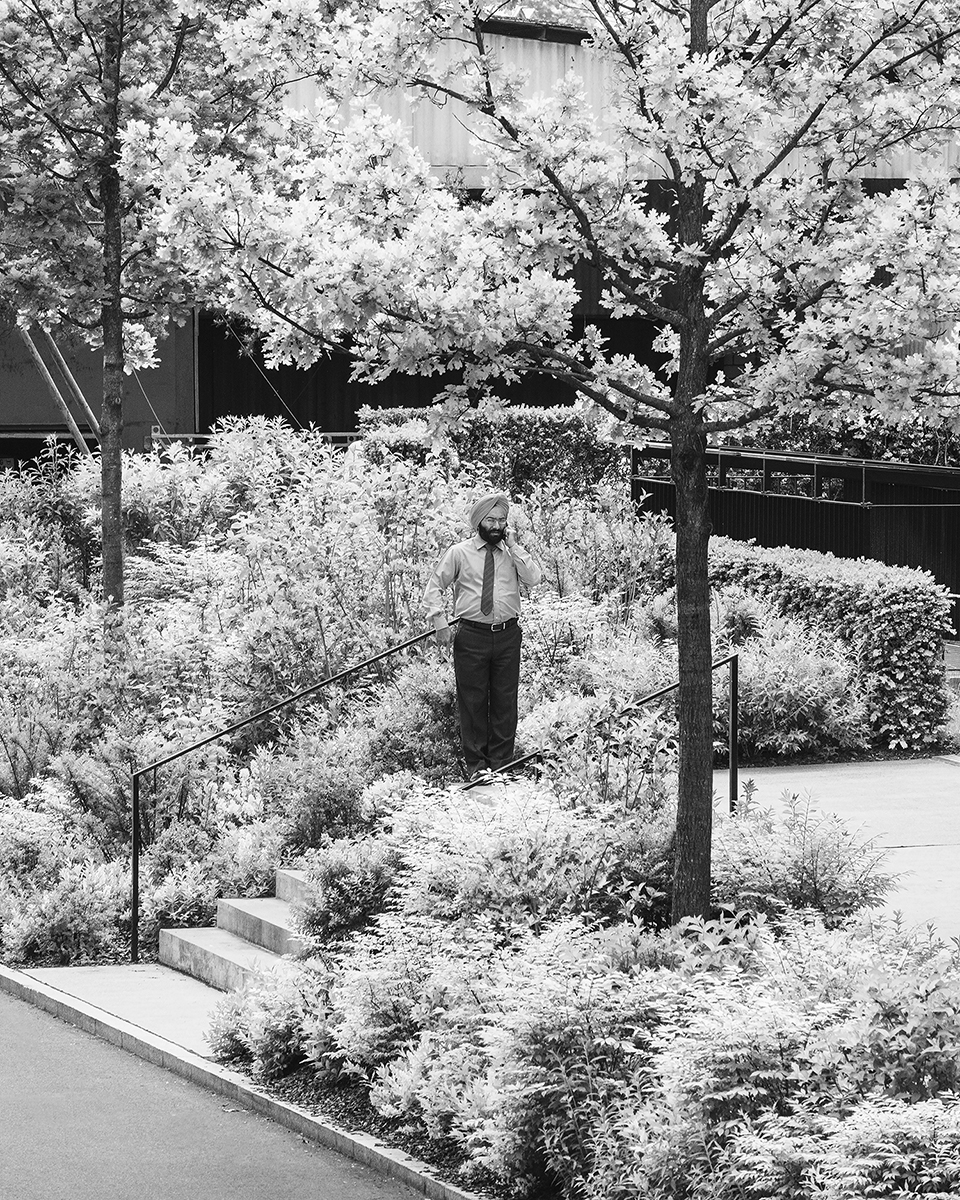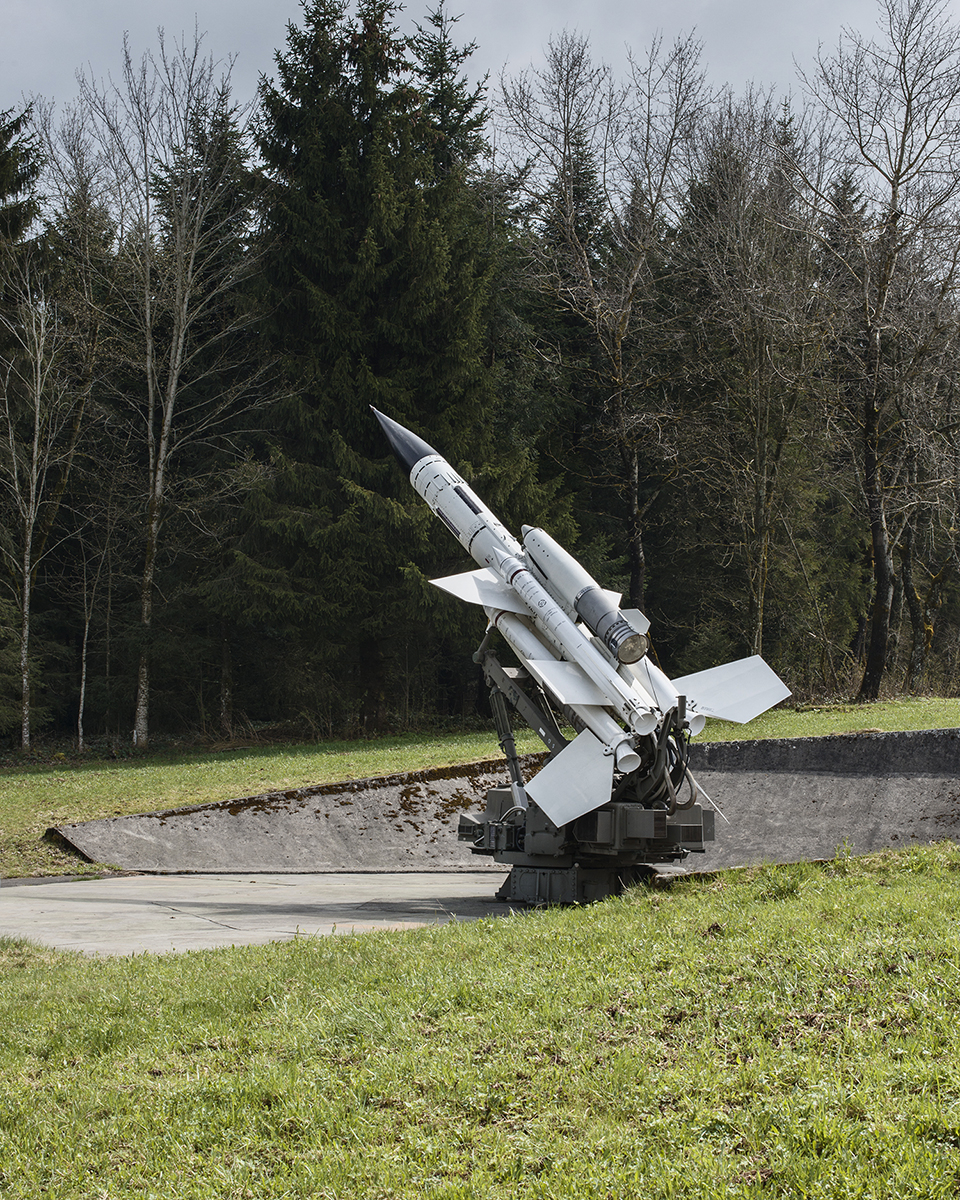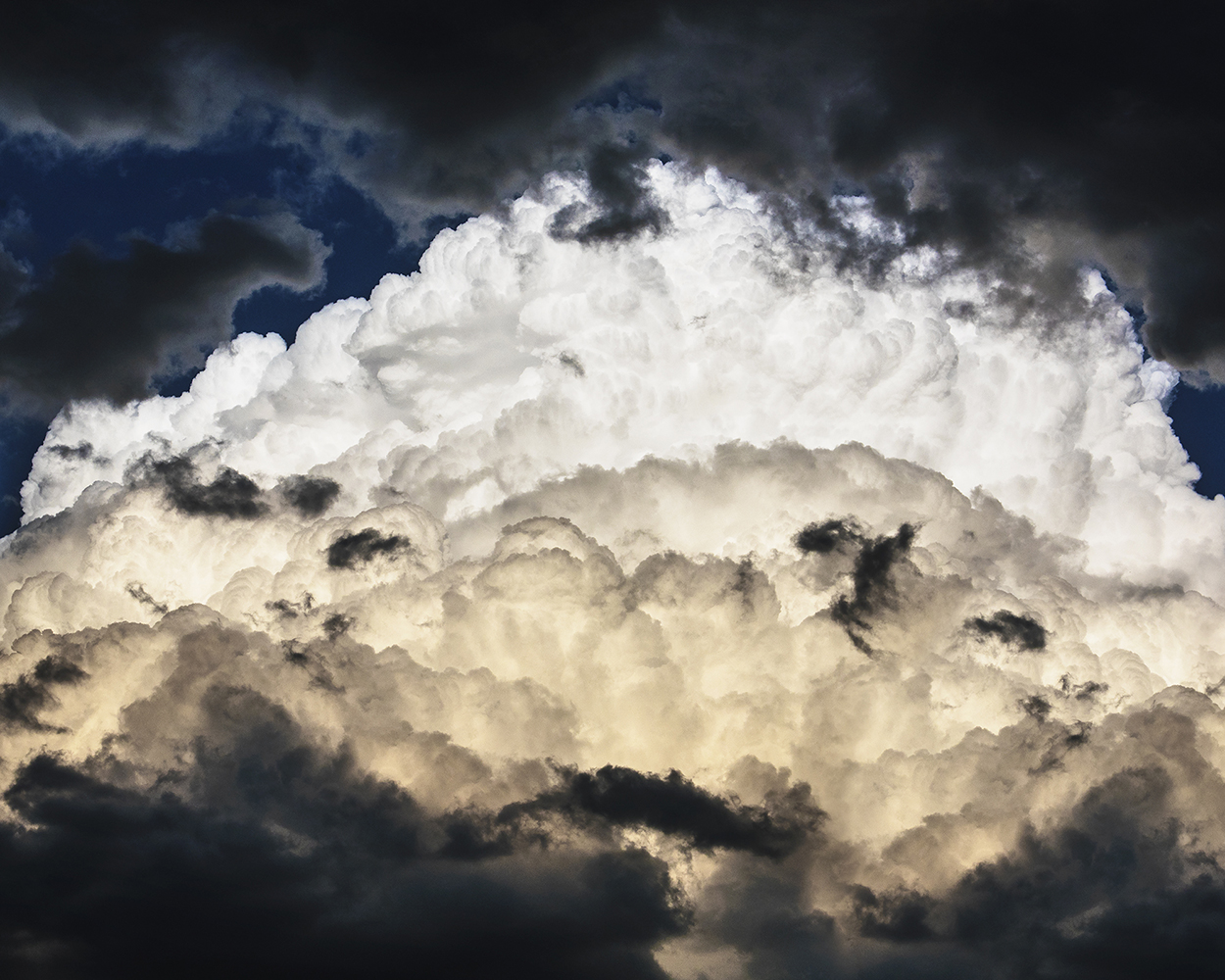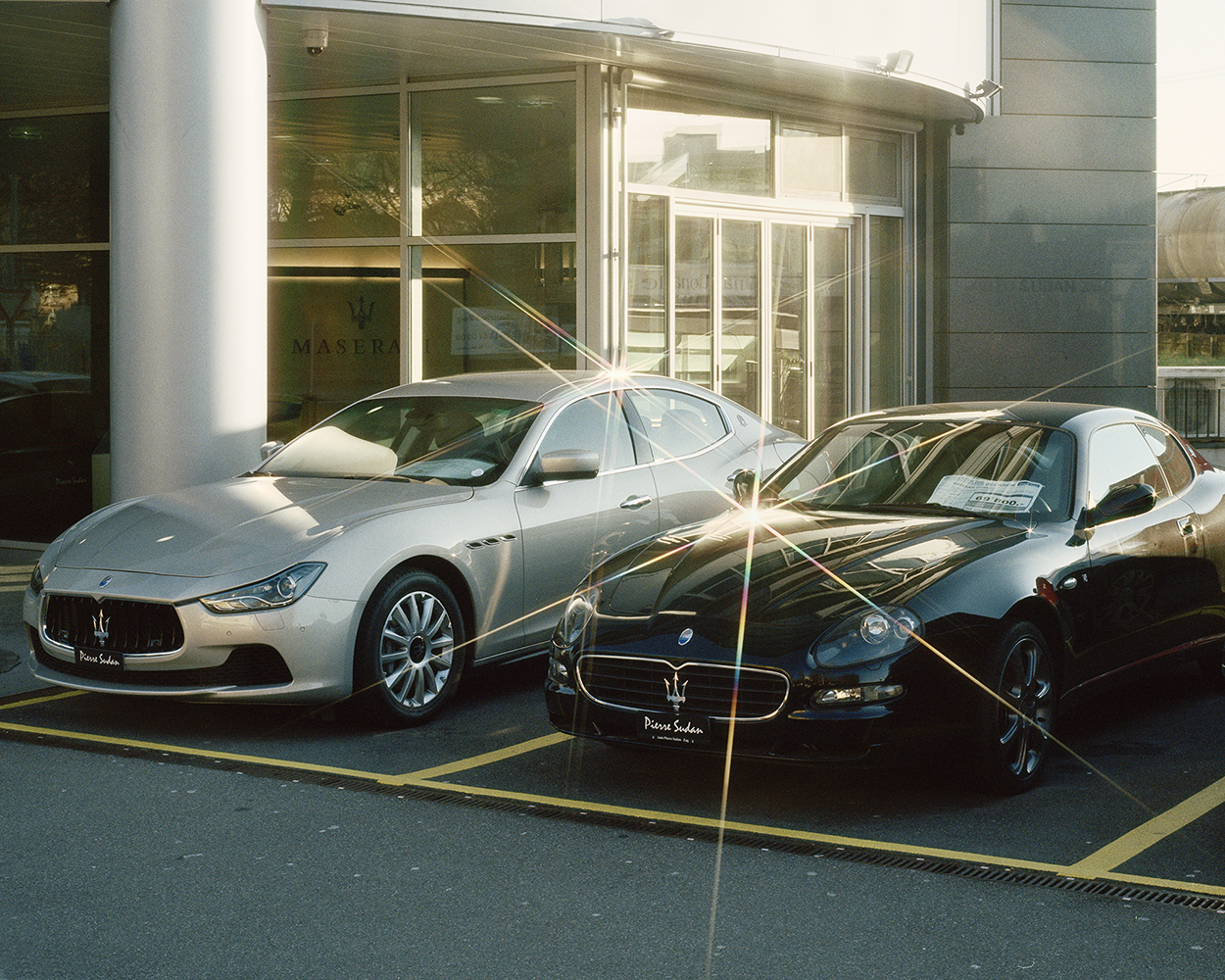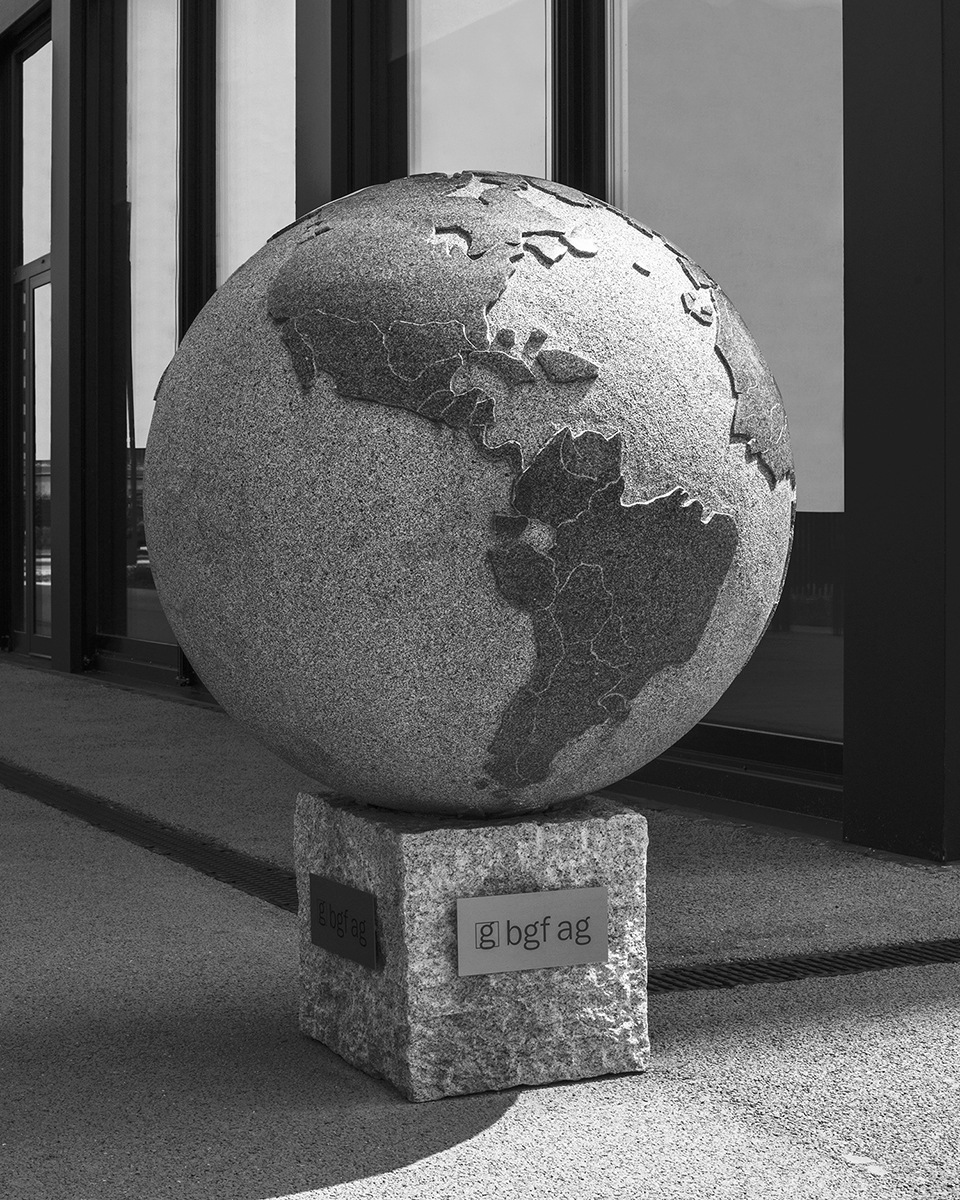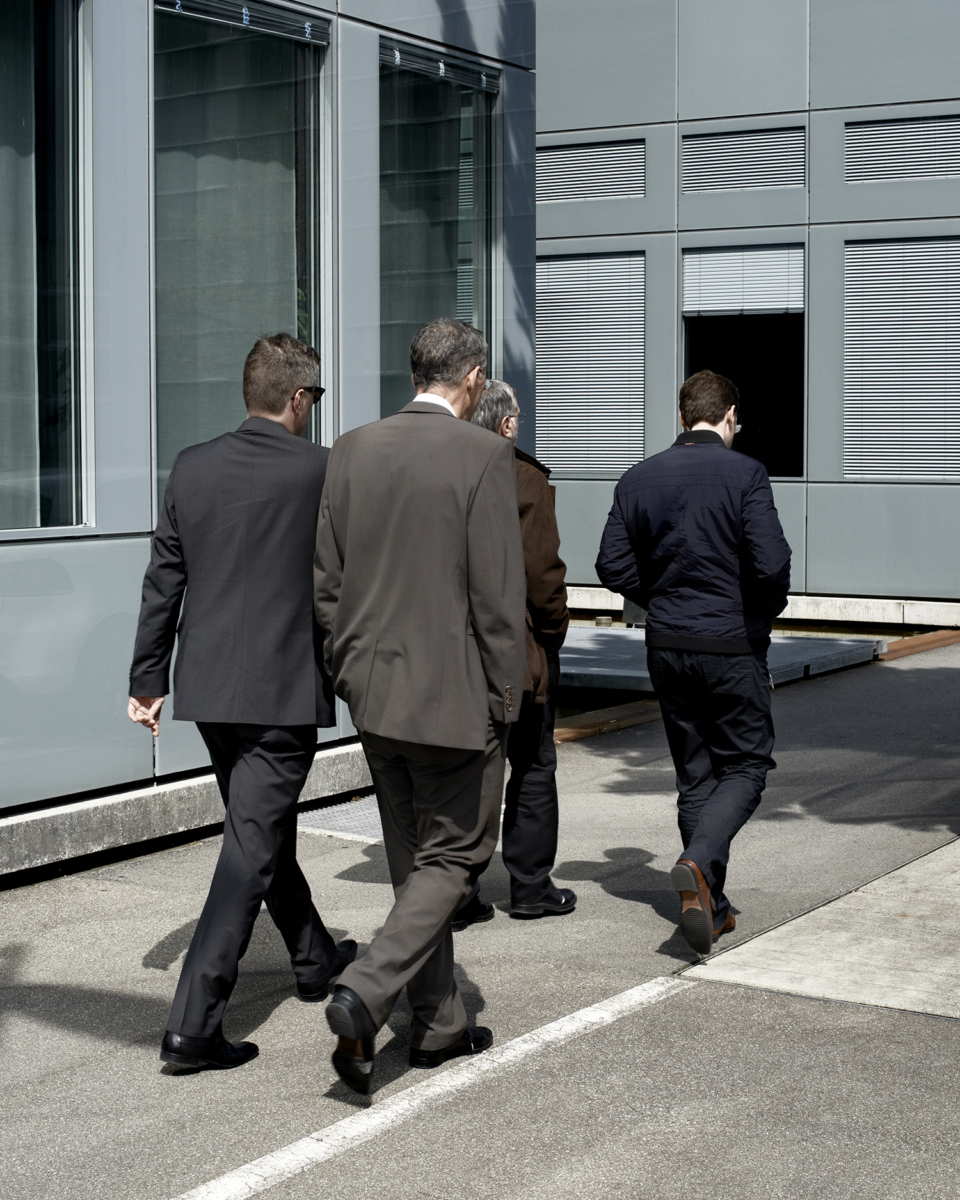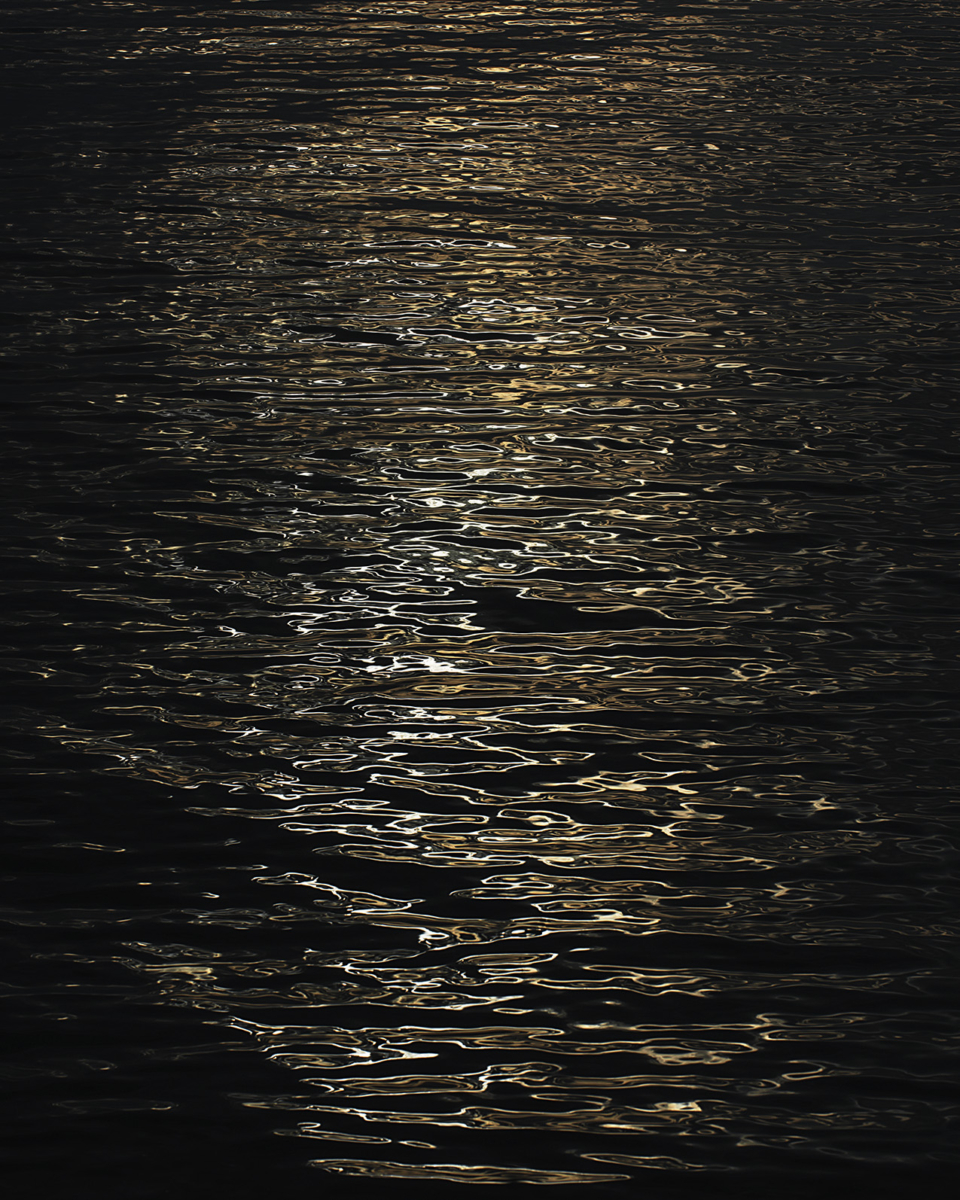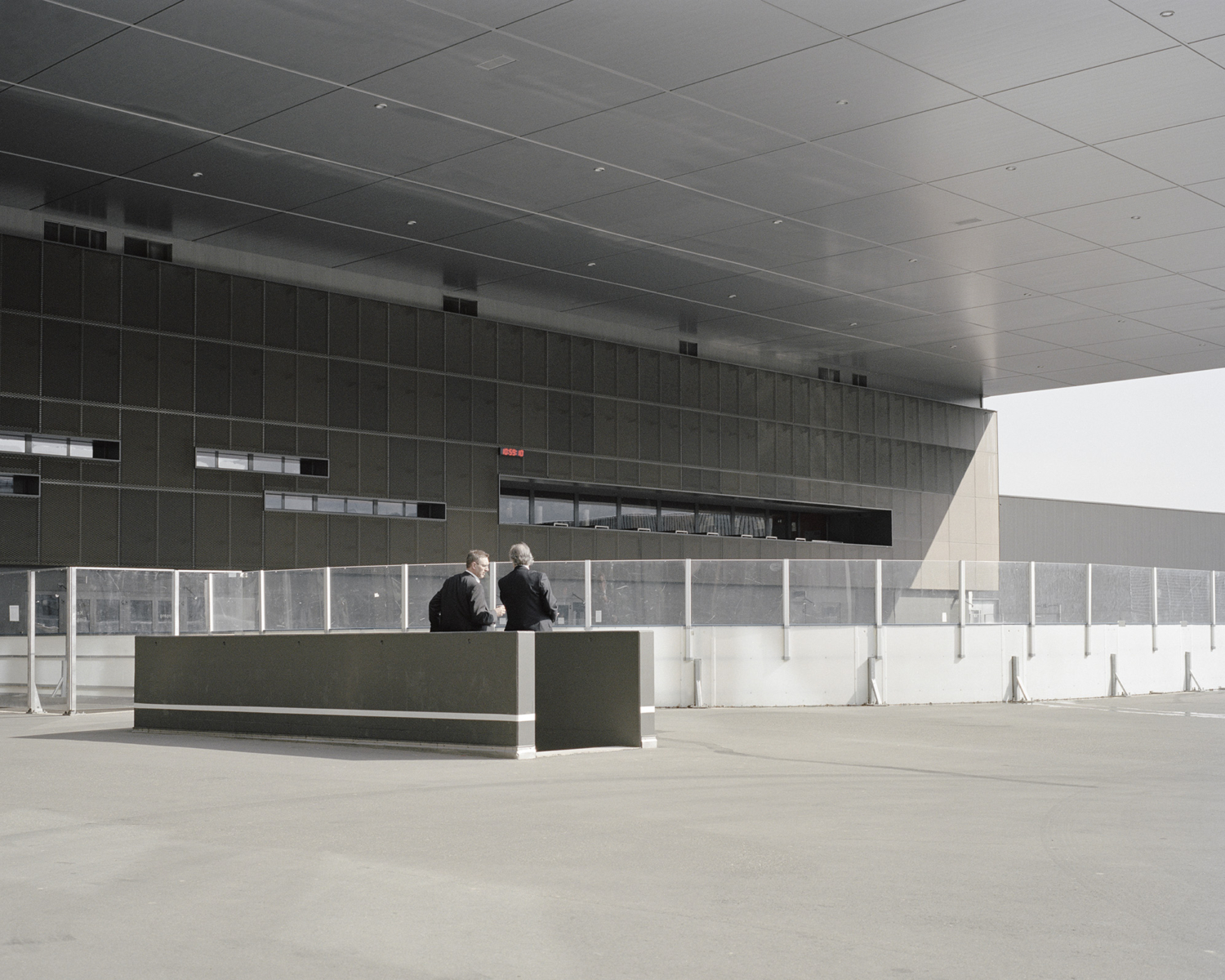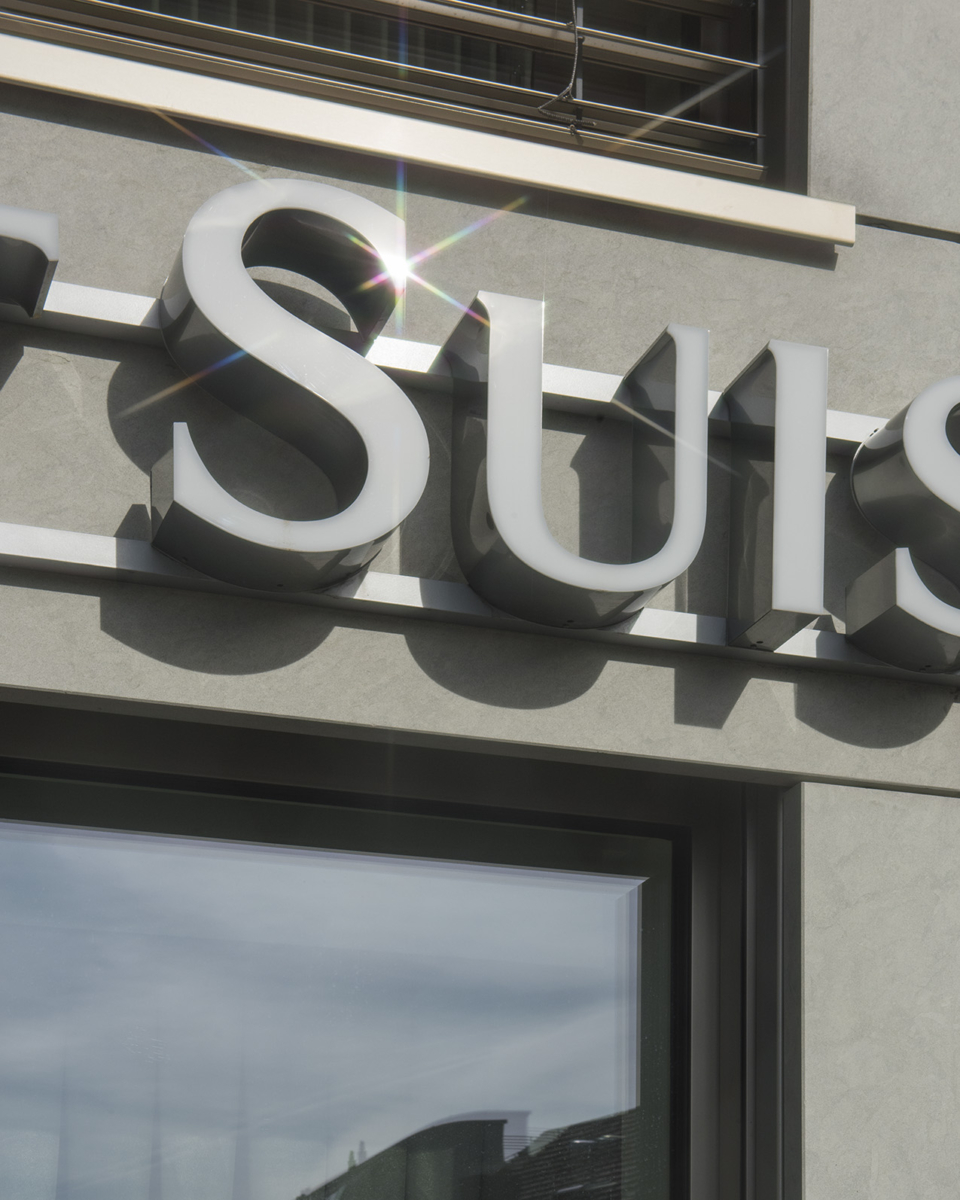Tereza Zelenkova
Artist Feature
Every week an artist is featured whose single image was published by Der Greif. The Feature shows the image in the original context of the series.
Younès Klouche - Orphèe
Jul 07, 2016
Orphée is a photobook inspired by the similarly titled film from 1950 by Jean Cocteau, itself a reinterpretation of the classic Greek myth of Orpheus. Cocteau’s film features simple but ingenious special effects and explores the symbolism of mirrors as a representation of death. In Klouche’s book, mirrors and visual mirroring feature not only in the photographs themselves but in the object of the book and in the physical act of turning the pages whilst reading. As Cocteau himself stated in The Art of Cinema (1992); "We watch ourselves grow old in mirrors. They bring us closer to death." The places documented in Orphée are the same locations as those presented in the the landmark exhibition “New Topographics: Photographs of a Man-Altered Landscape” shown at the George Eastman House, Rochester in 1975. This new book therefore represents an essay on the evolution of documentary photography and the current conceptual-reflexive turn that it is taking. There are no staged photographs here, so individually the images can be seen in a reportage aesthetic. But taken together, they drive a fiction; Orphée constructs a place that doesn’t exist, with fragments of the North American reality. First Edition 500 copies 48 pages, 26 plates 23.0 cm x 33.0 cm Swiss Bound Metallic Softcover Offset printing Éditions du LIC 2016 ISBN 978-82-93341-16-1
Artist Blog
The blog of Der Greif is written entirely by the artists who have been invited to doing an Artist-Feature. Every week, we have a different author.
Published in:
»Guest-Room Mirjam Kooiman«
Switzerland’s Finest
Jul 11, 2016 - Younès Klouche
With this work, I studied how swiss people display their mountains for touristic purposes. I didn’t focus on the actual tourists, but the helvetic way of transporting them from point A to a very elevated point B. There is images describing multiple distant places in the country. I arranged them together to create some kind of a twin peaks idea in the swiss mountains. The Matterhorn for instance, is the most iconic mountain and can be seen at the center of absolutely every window in Zermatt. Even a small skylight in a self service cafeteria shows the very impressive mountain. The whole village is built around it giving the mountain a panoptical value. In a remote place of the country there is a palace with it’s own private ski slopes and a monorail cabine with leather seats to go from the lobby to the top of the hill. By sequencing photographs of this subject, I build a fictive place made with fragments of documentary imagery. Like a « mise-en-scène » that questions the evolving genre of the reportage. –Younès Klouche
Superfast!
Jul 10, 2016 - Younès Klouche
Coca-Cola is present all around the world. Its imperialistic ambitions called by the will to grow have crossed all the geographical frontiers and laid a hand on the global market. The only dimension left to conquer is Time. Nowadays, we cannot be satisfied to spend our money only when we specifically decided to go shopping. We buy material or immaterial goods all day long. A train ticket is then more expensive because it goes with a big load of text messages, a few megabytes of downloaded content and a gourmet menu carefully wrapped in multiple layers of plastic and signed by some prestigious chef. In this paradigm, the seats of a ferry boat are no longer designed for travelers, but for the customers of an onboard cafeteria. If you fill up your tank at a gas station you will be offered a fair-trade smoothie in a plastic bottle in thanks for the 1000th liter of fuel you bought. And in Zurich, you can find a luxury carwash through which goes german sedans from local managers. And in the same building, there is a lounge bar decorated by international standards: Heavy black leather couches, zen sculptures, Swarovski’s chandeliers. There is no time to spare! Every moments of yours is taken care of. You will never be too far away from a cocktail and always in the comforting zone of an operating wifi network. This kind of environment is getting more and more common and is the new playgrounds for photographers. –Younès Klouche
Showing the work
Jul 09, 2016 - Younès Klouche
With TRUST Magnum, I want to activate the desire to see; by using multiple effects to obscure the images. It’s a playful use of brilliance like a « miroir aux alouettes » Mostly because of all the reflective surfaces on the buildings, the cars, even the lake. There is a physical and mental reflection provoked by some of the pictures making you wonder what’s happening behind. To make this project, I didn’t need any privileged access. Each of the photographs describes common places in central Switzerland you could see just by going there. But to make you feel like you don’t have all the informations I made the out of frame very loud. The subjects are tightly cropped and placed in the layout in a way to suggest that there is more to see out of the picture. What you see is only a fragment of something bigger. Through the pages, the sequence slowly dives into grayness. Loosing color in photography is loosing informations. And in the end the book is all black and white. This conceptual and reflexive approach on documentary photography is a movement in which I feel I belong. –Younès Klouche
TRUST Magnum
Jul 08, 2016 - Younès Klouche
In central Switzerland, international companies enjoy tax privileges and set offices in large buildings just like those of The City in London. The managers and employees roam the streets of a small village in german convertibles or running clothes at lunchtime. The management and research division of these companies is based in Switzerland but theproduction take place in developing countries, nations that own valuable materials at cheap price. The only small thing is that operating in such a kind of places they can easily evade from respect human and environment rights. Glencore for instance is a giant wholesaler and mineral extractor based in Baar, is one of the biggest commercial company in the world, in 2010 they owned the 60% of the zinc global market, 50% of the copper mines of the and 3% of the petrol infrastructures. We can say that Glencore own worldwide oil, mineral and natural gas facilitiesas well as food industries. The accusation on Glencore are heavy, thework conditions of the employees are unacceptable based on the western world standards, without mention the negative impact on the local communities and on the environment. The work of Younès Klouche not pretend to judge those dynamics, or using images as a tool of complaint of a ethically questionable legacy, handed down from company to company. The artist gives us the access inside of this tax free heaven, absorbed in one of the most beautiful landscape of the entire nation. With no privileged access on site, central Switzerland allowed Younès Klouche to observe what makes no uproar, spy the discrete practices of traders hide inside dark and shiny buildings that hits also the less attentive watch. As spooky postcards, made with sharpen and rigid elegance, the images of Younès Klouche are almost violent and creates an aesthetics experience that leave the observer frozen. An intangible cold that deals with the distance, the untouchability of a world that remains closed in a inscrutable bubble of glass. Text by Matilde Scaramellini


